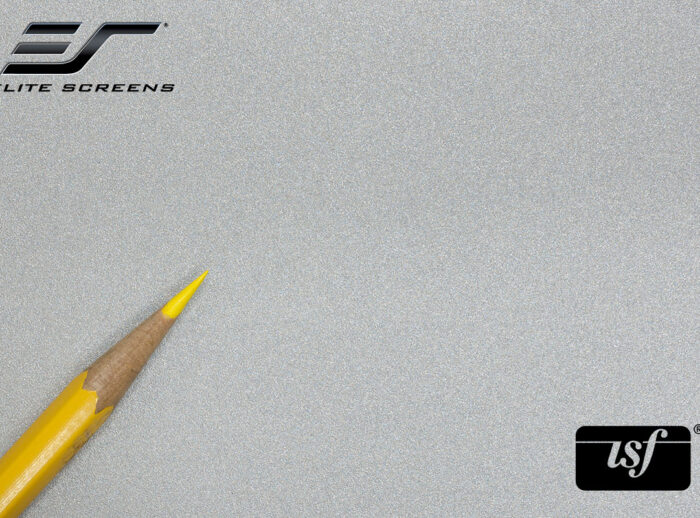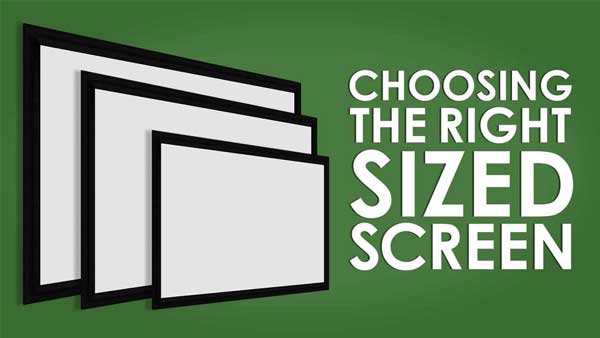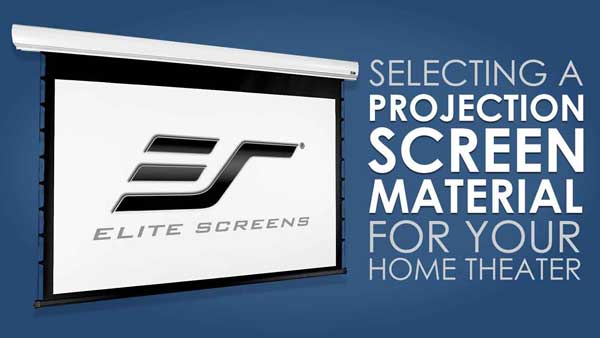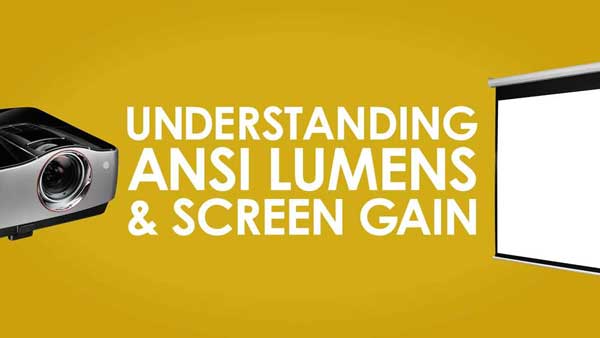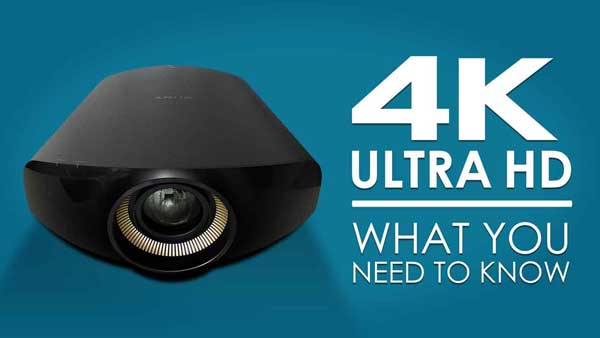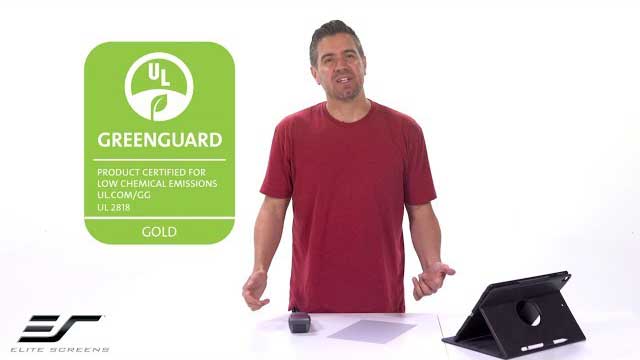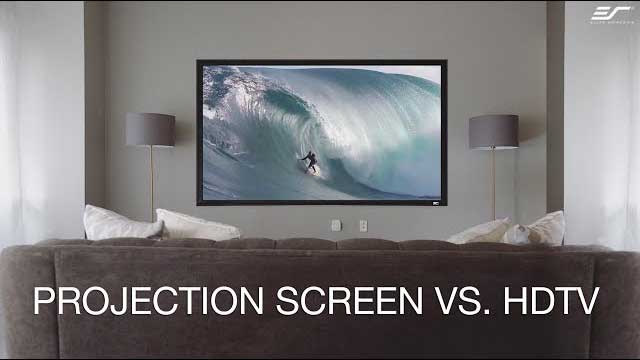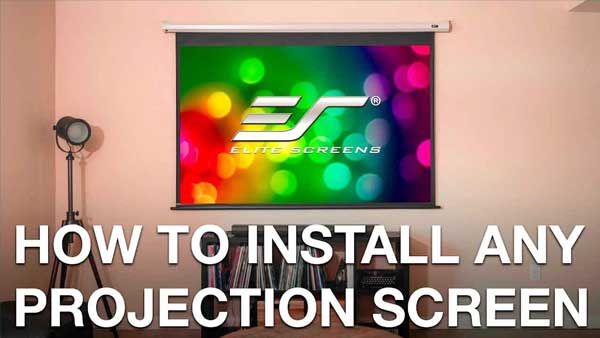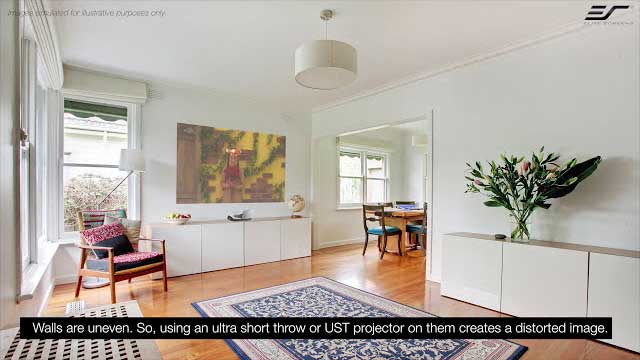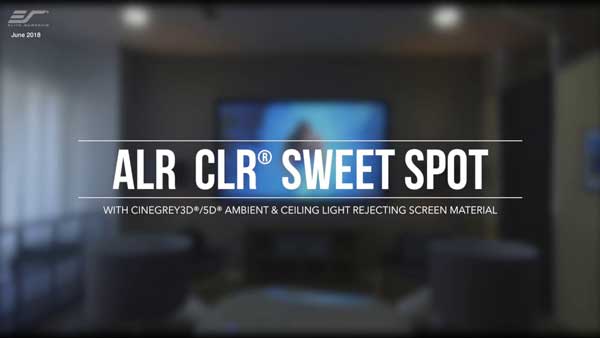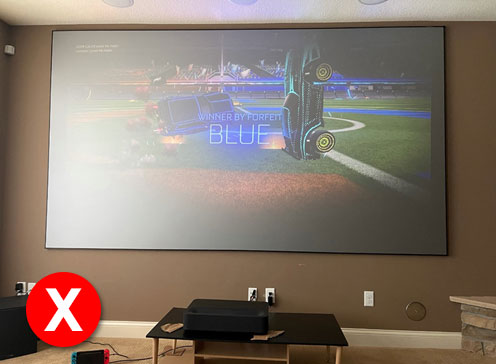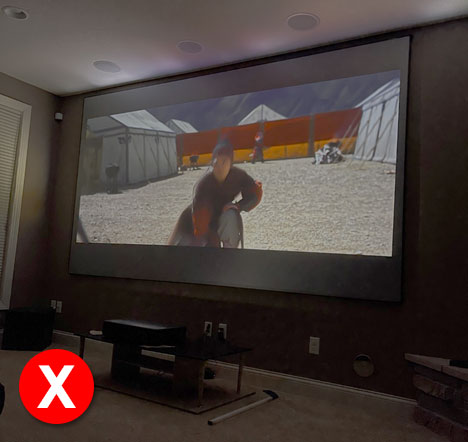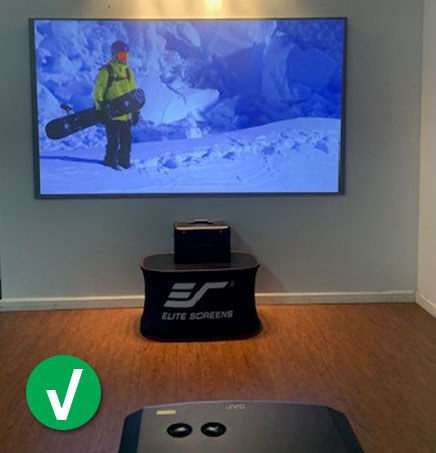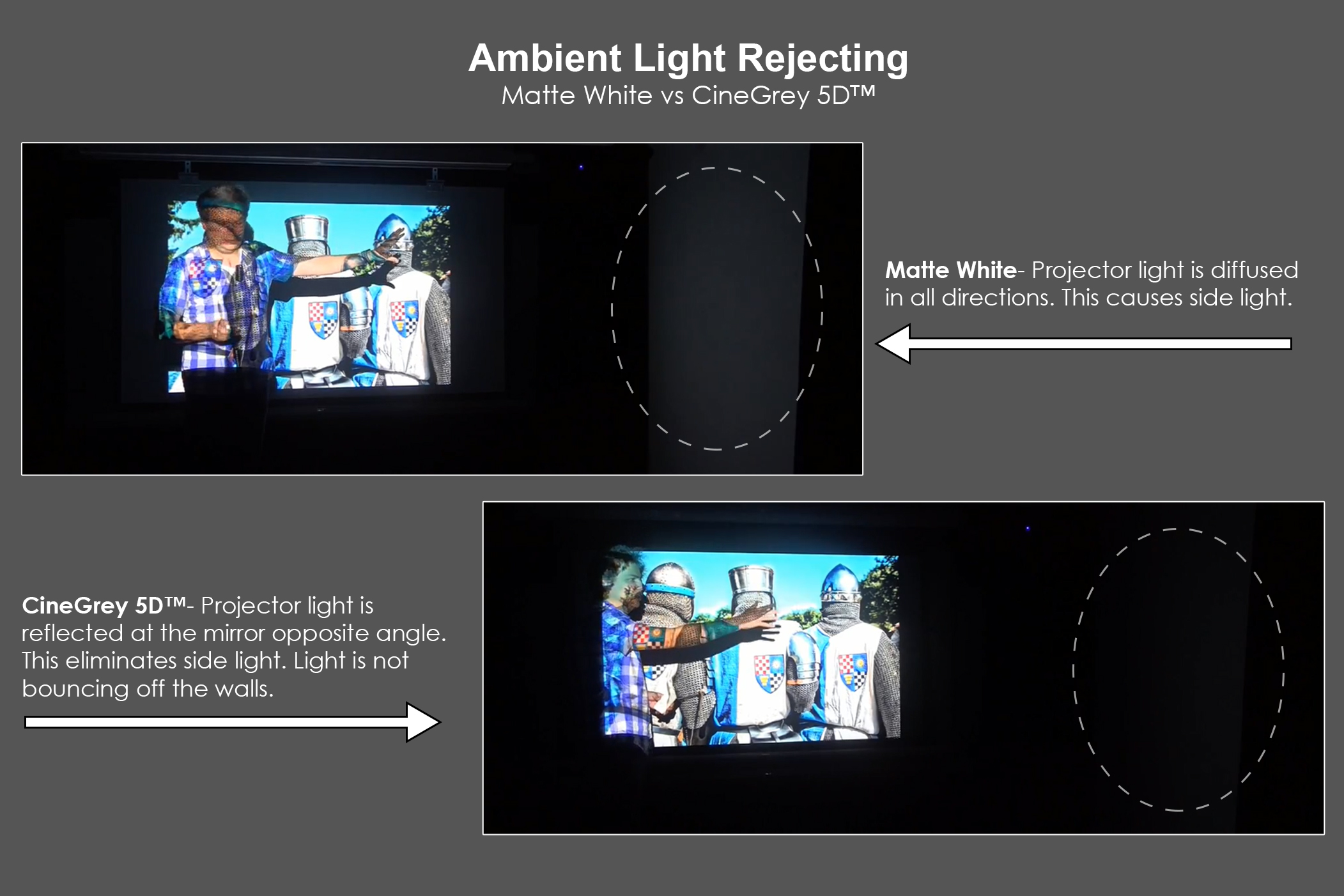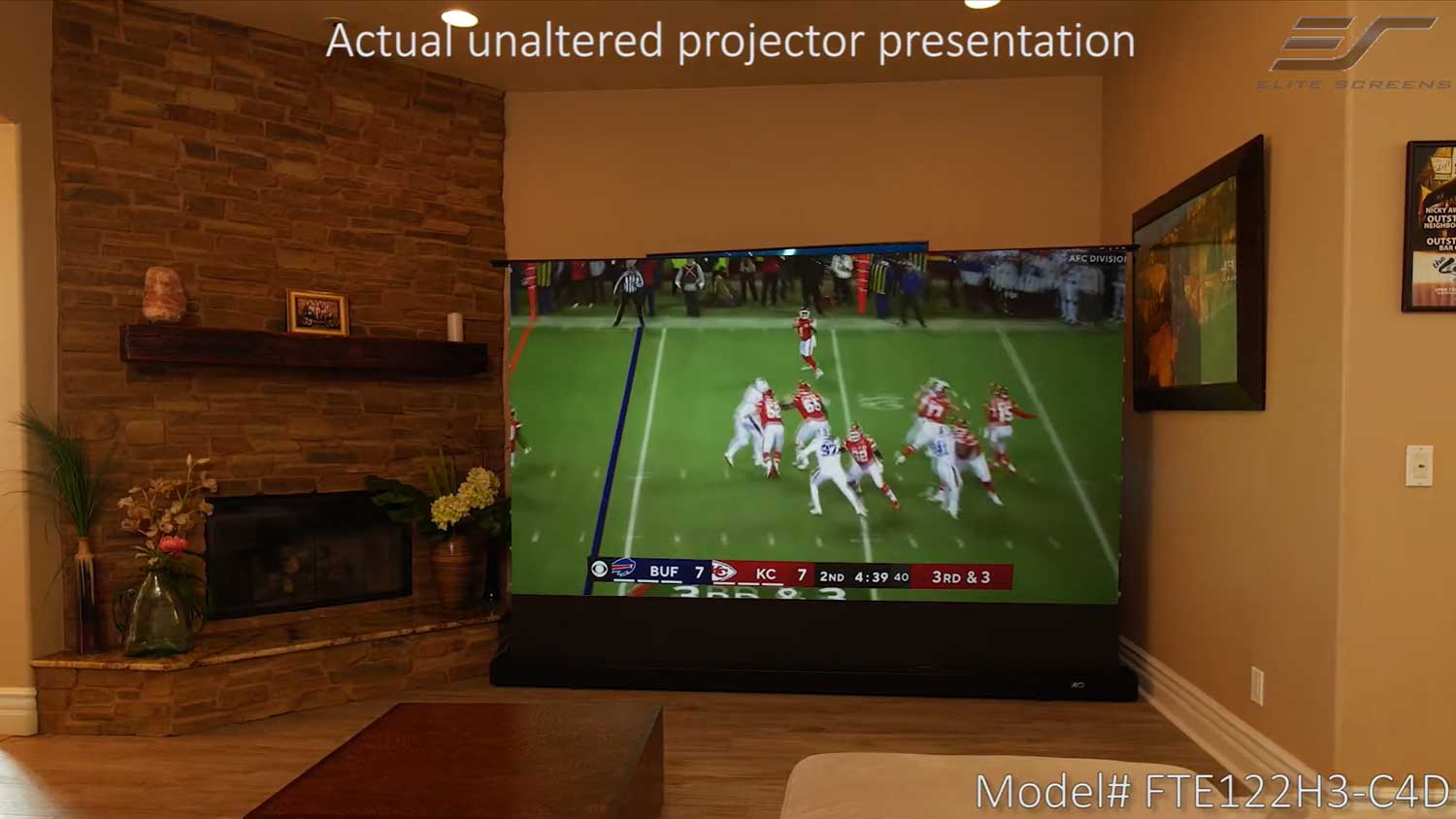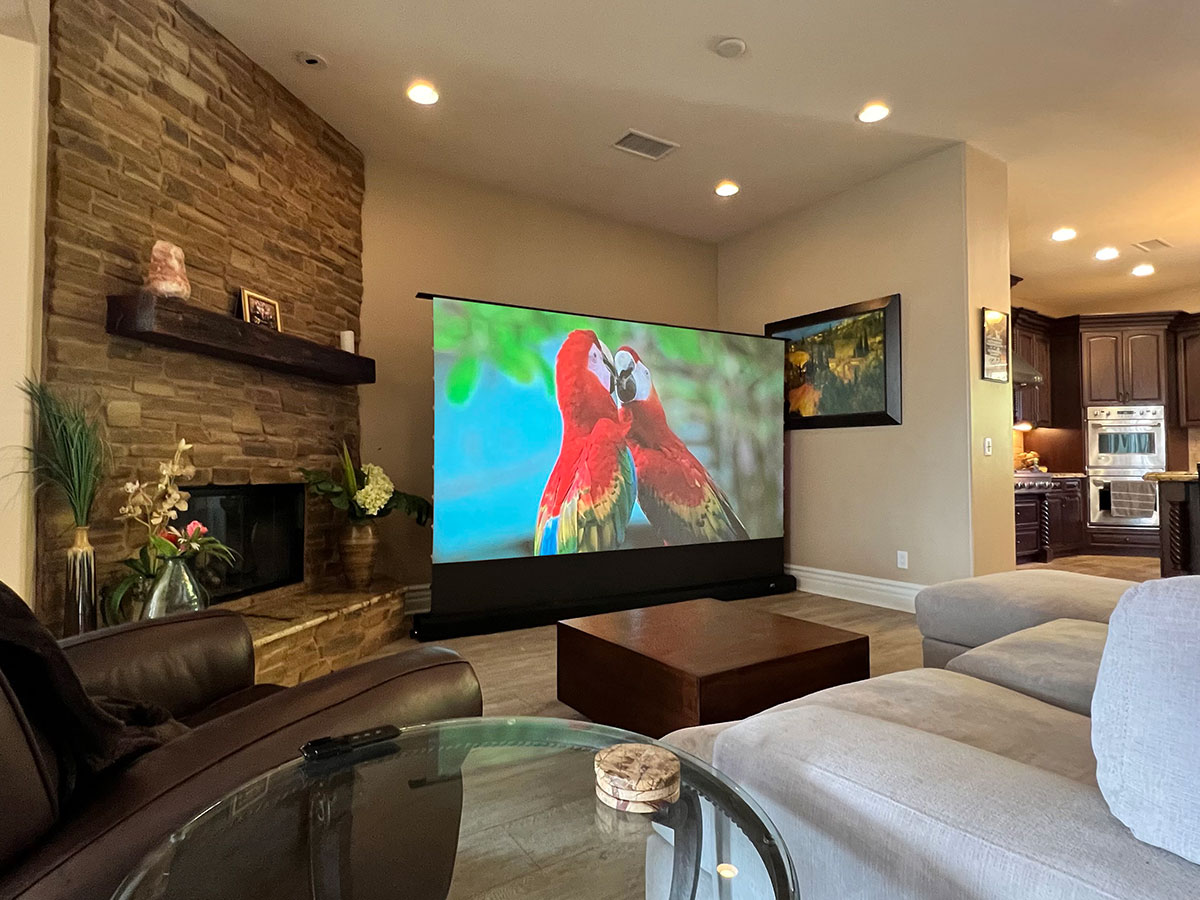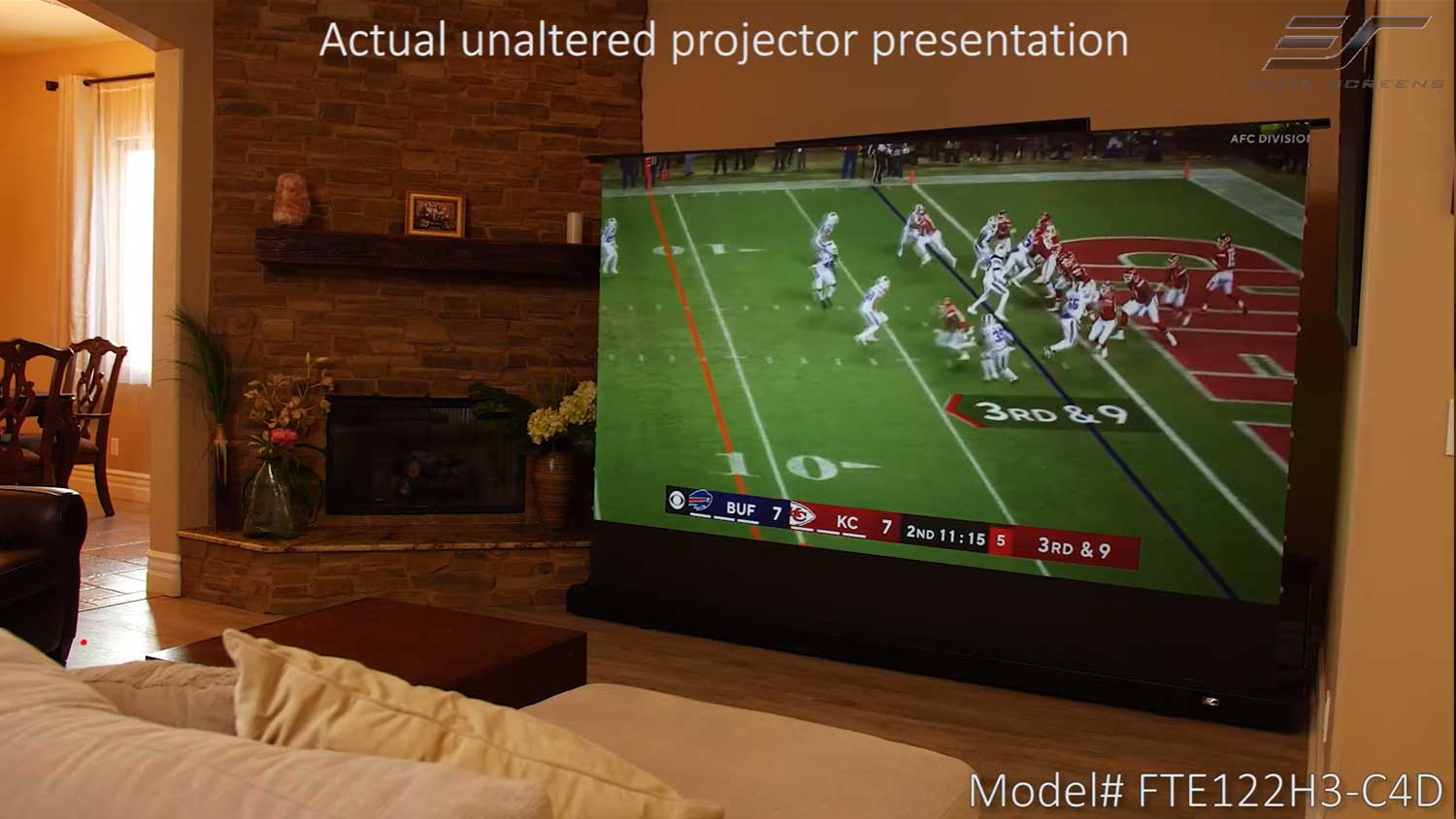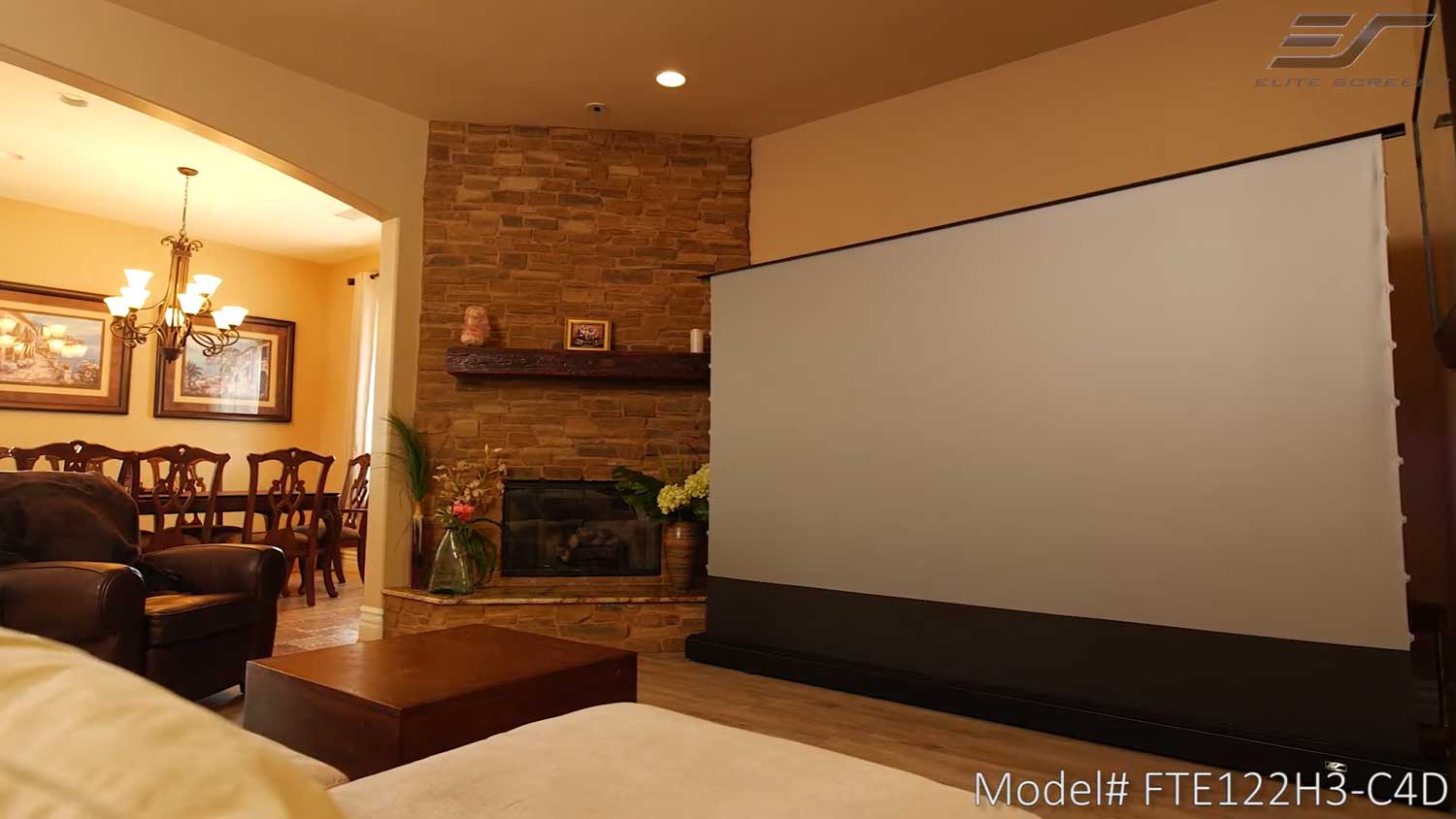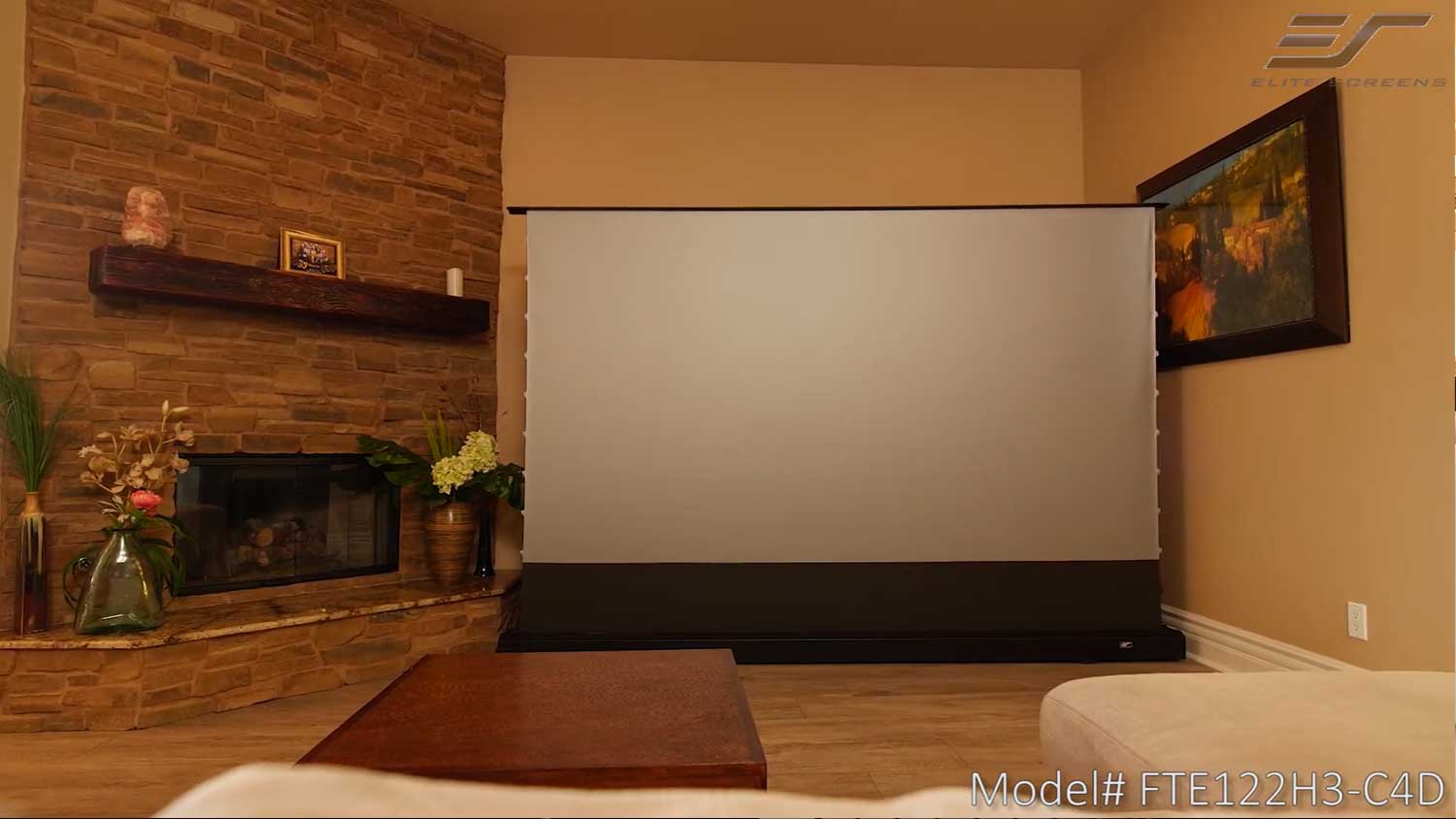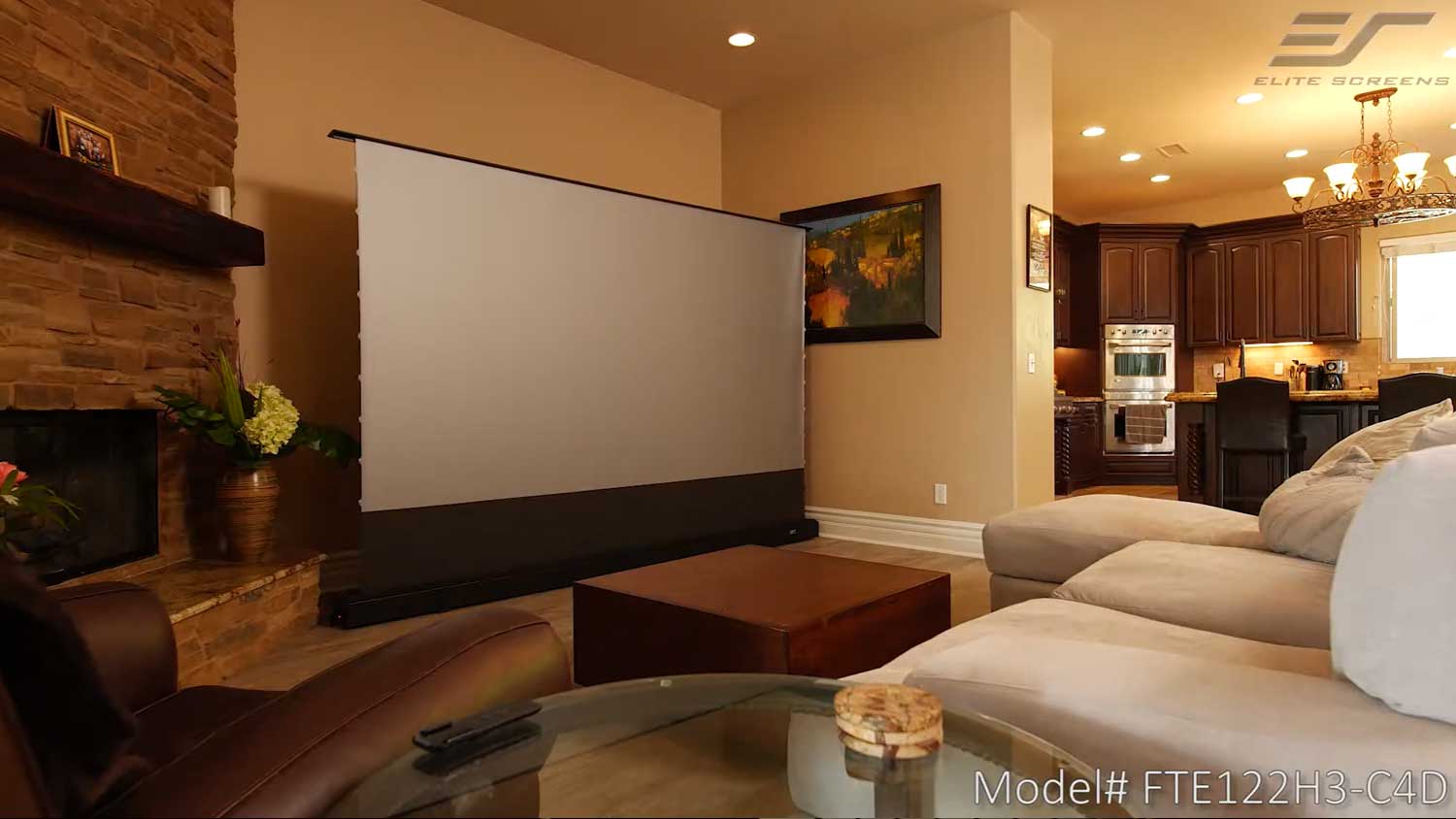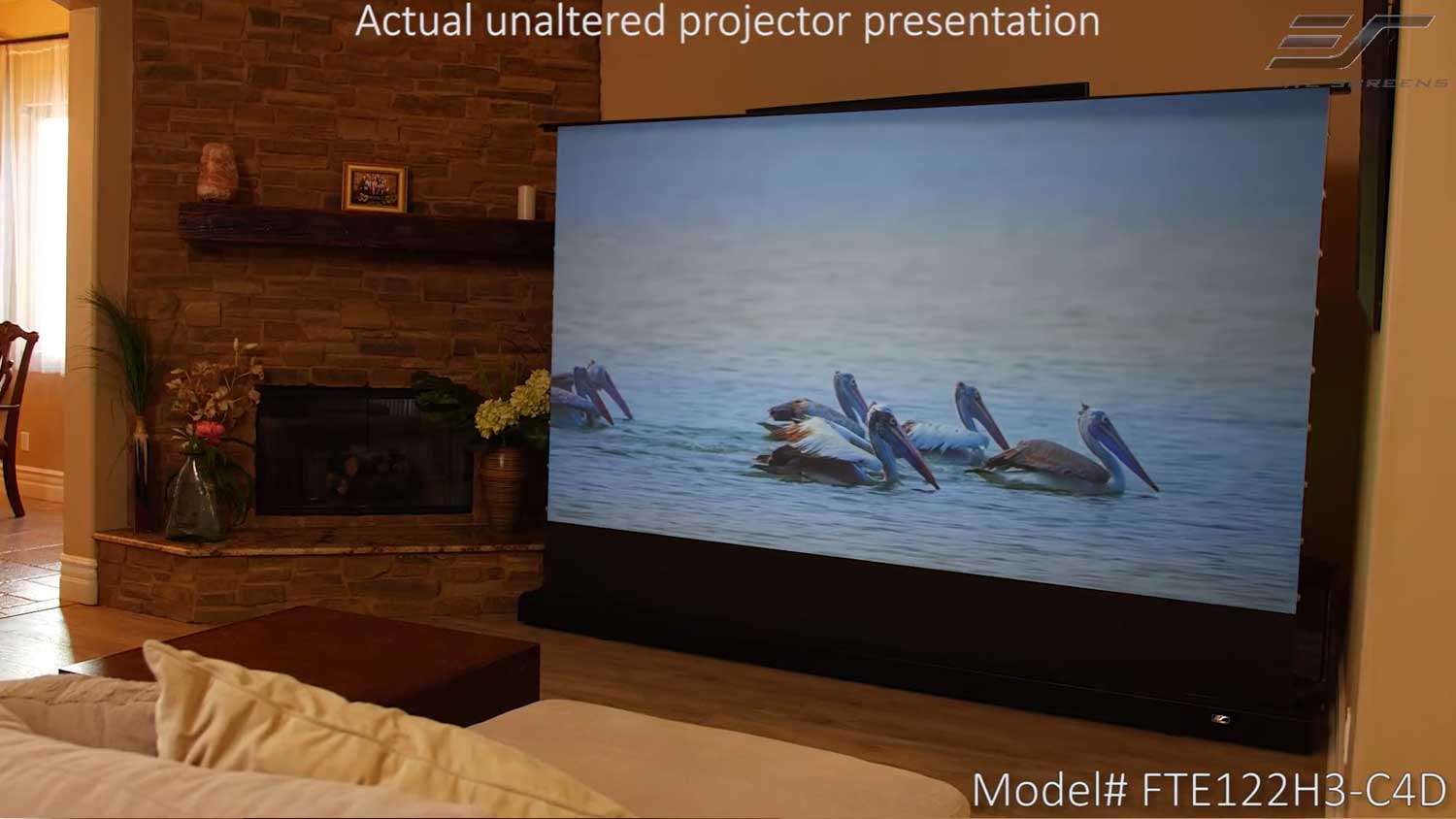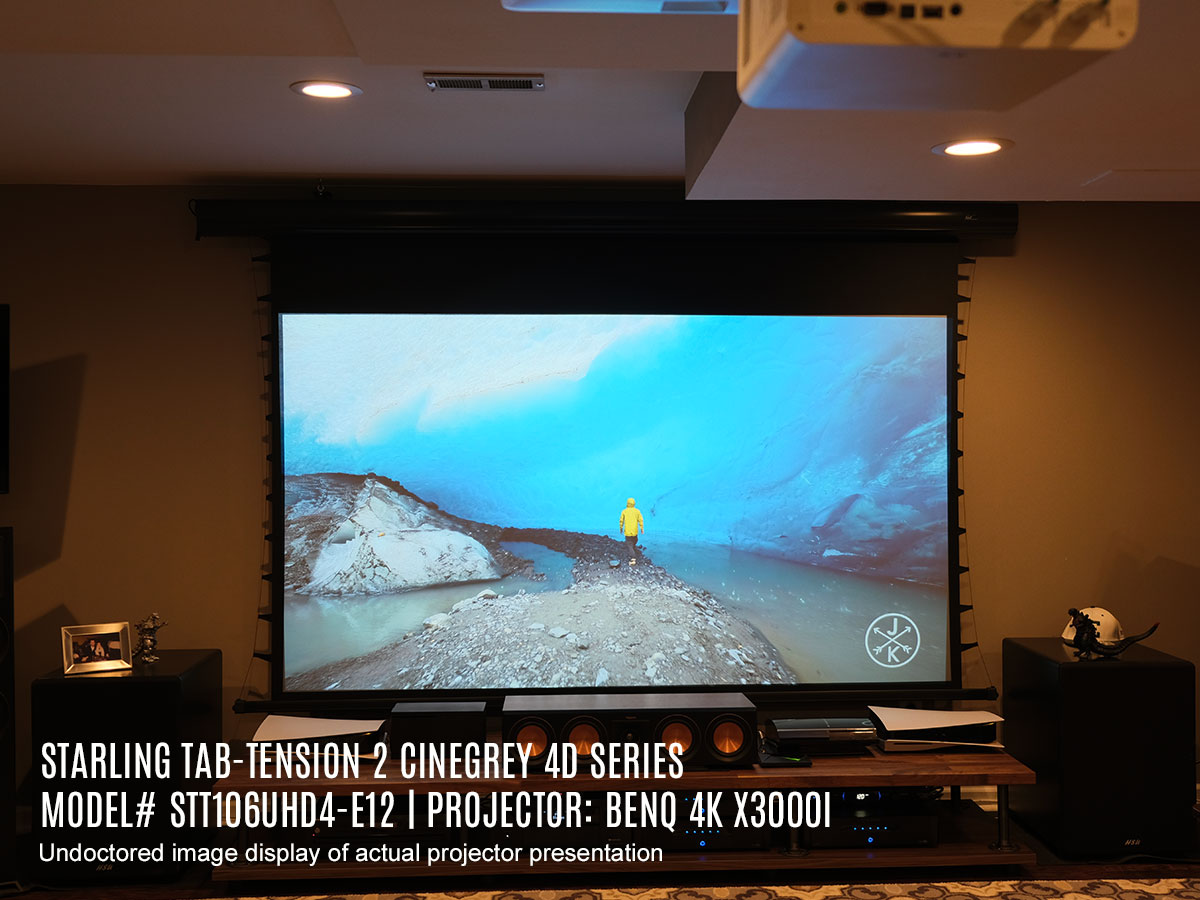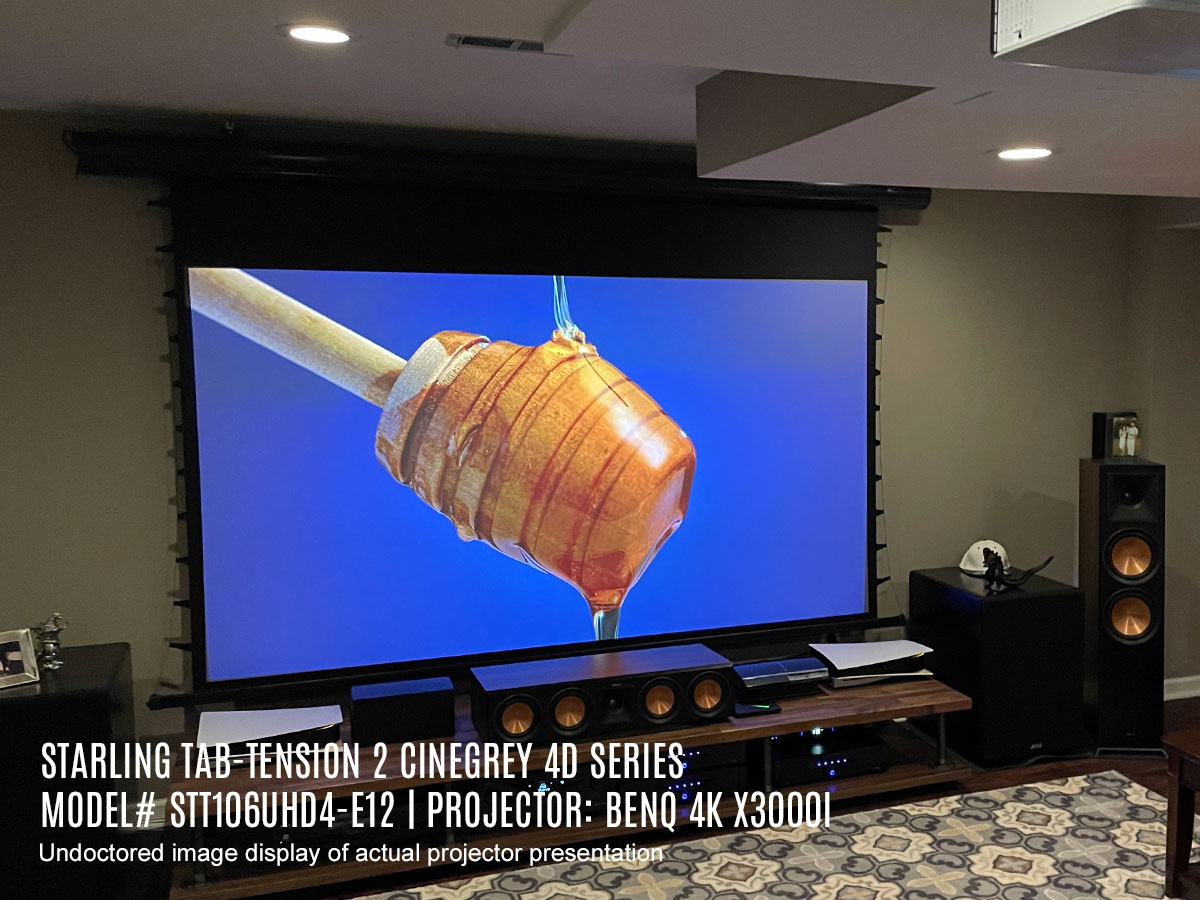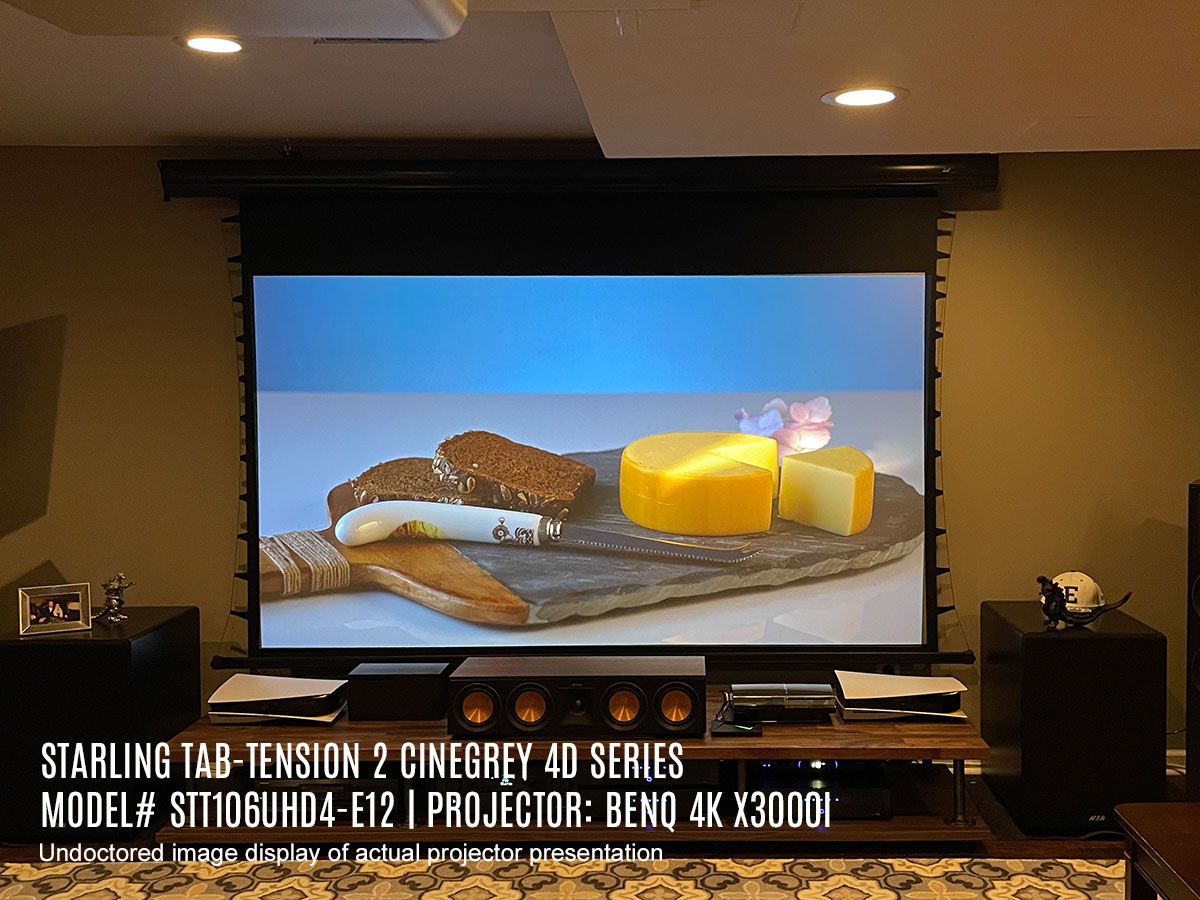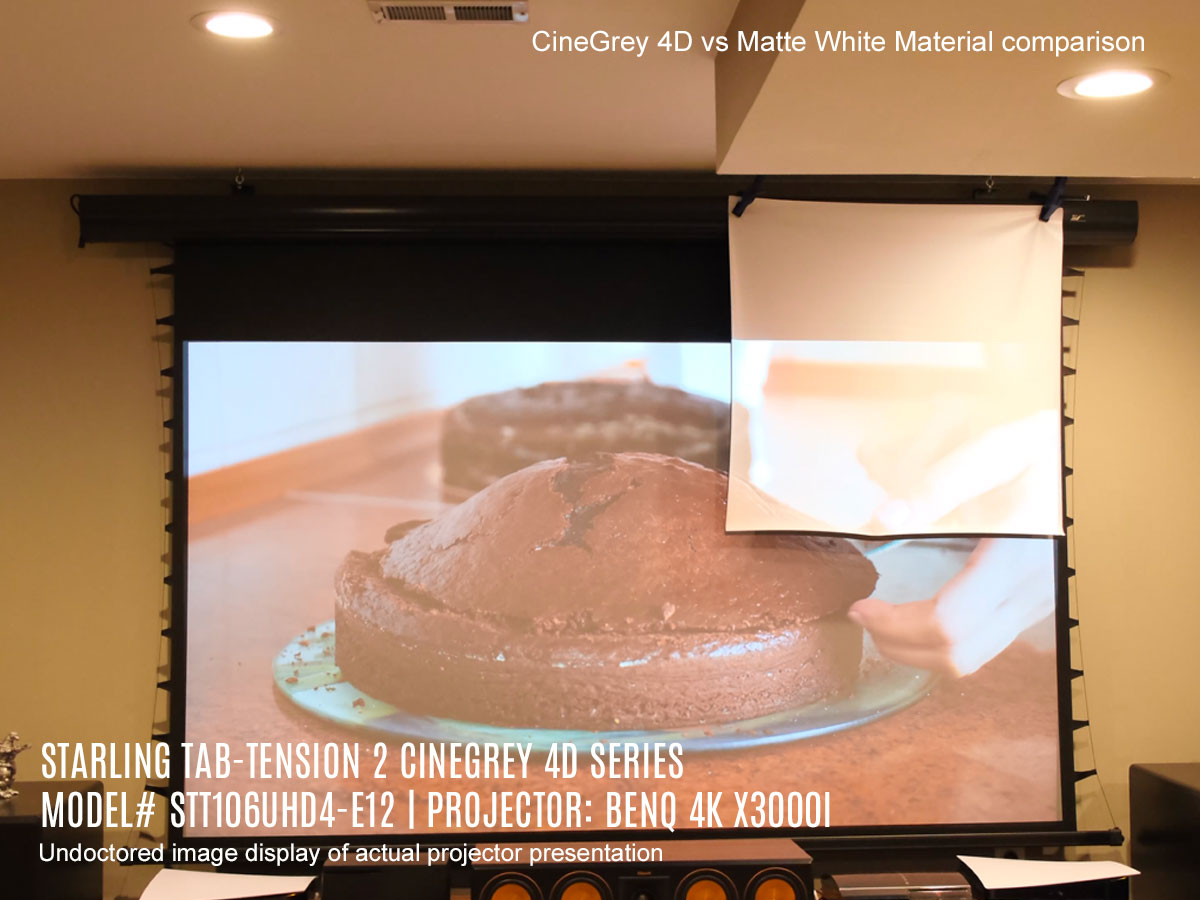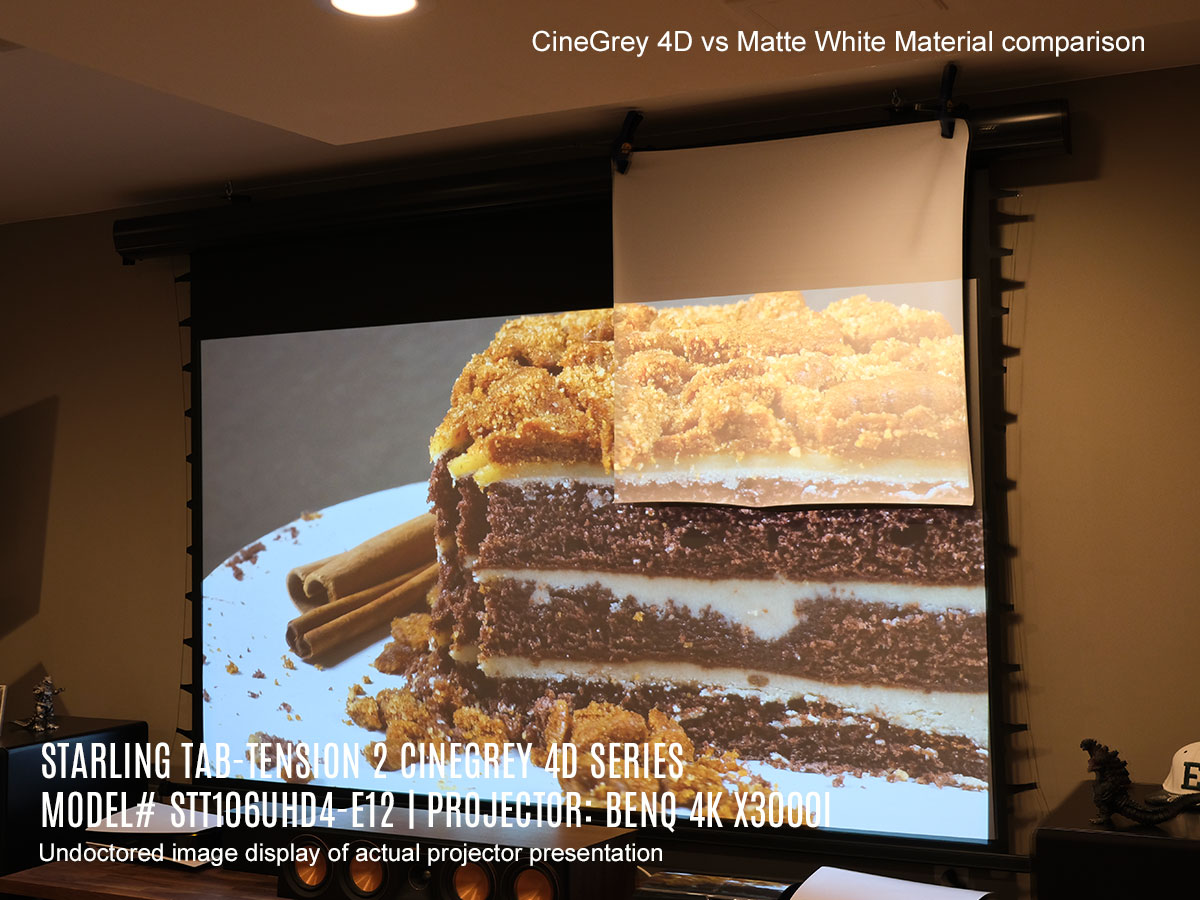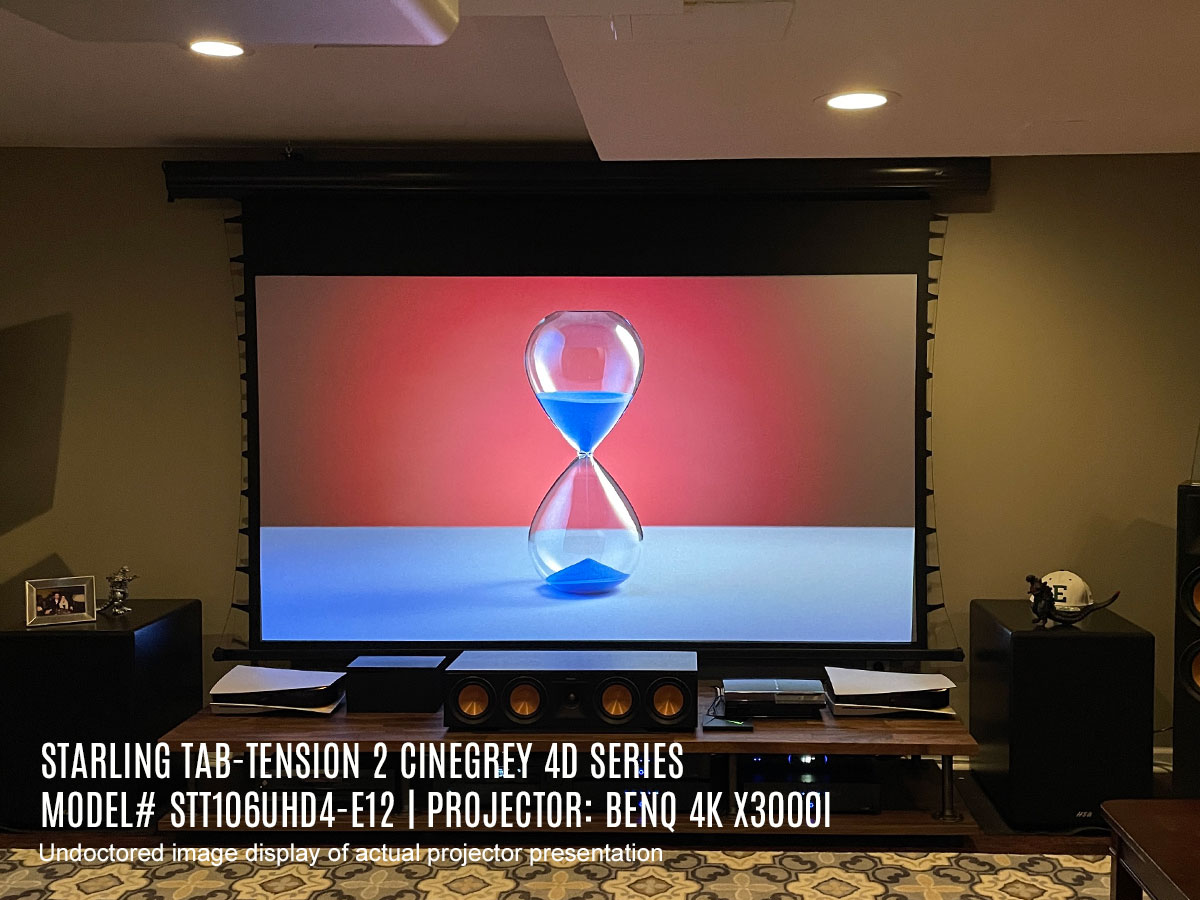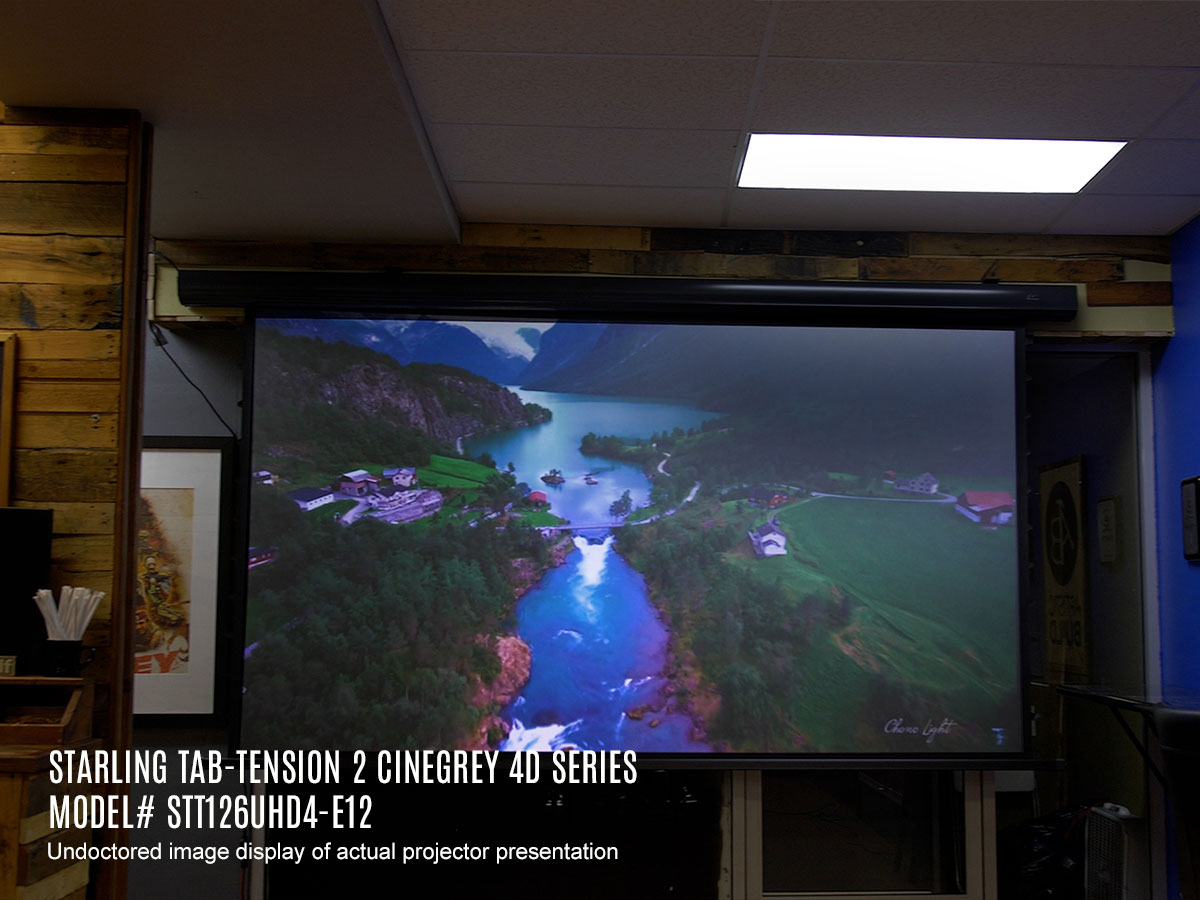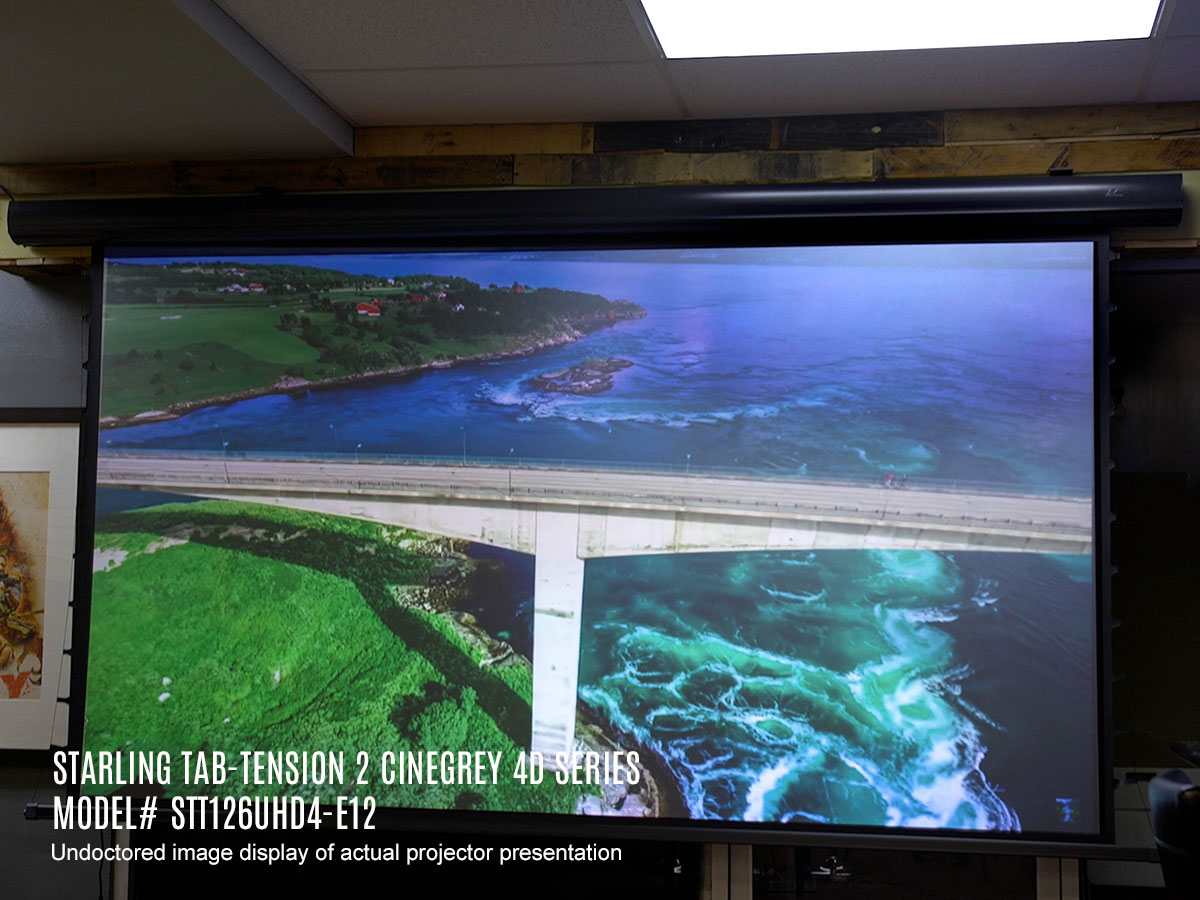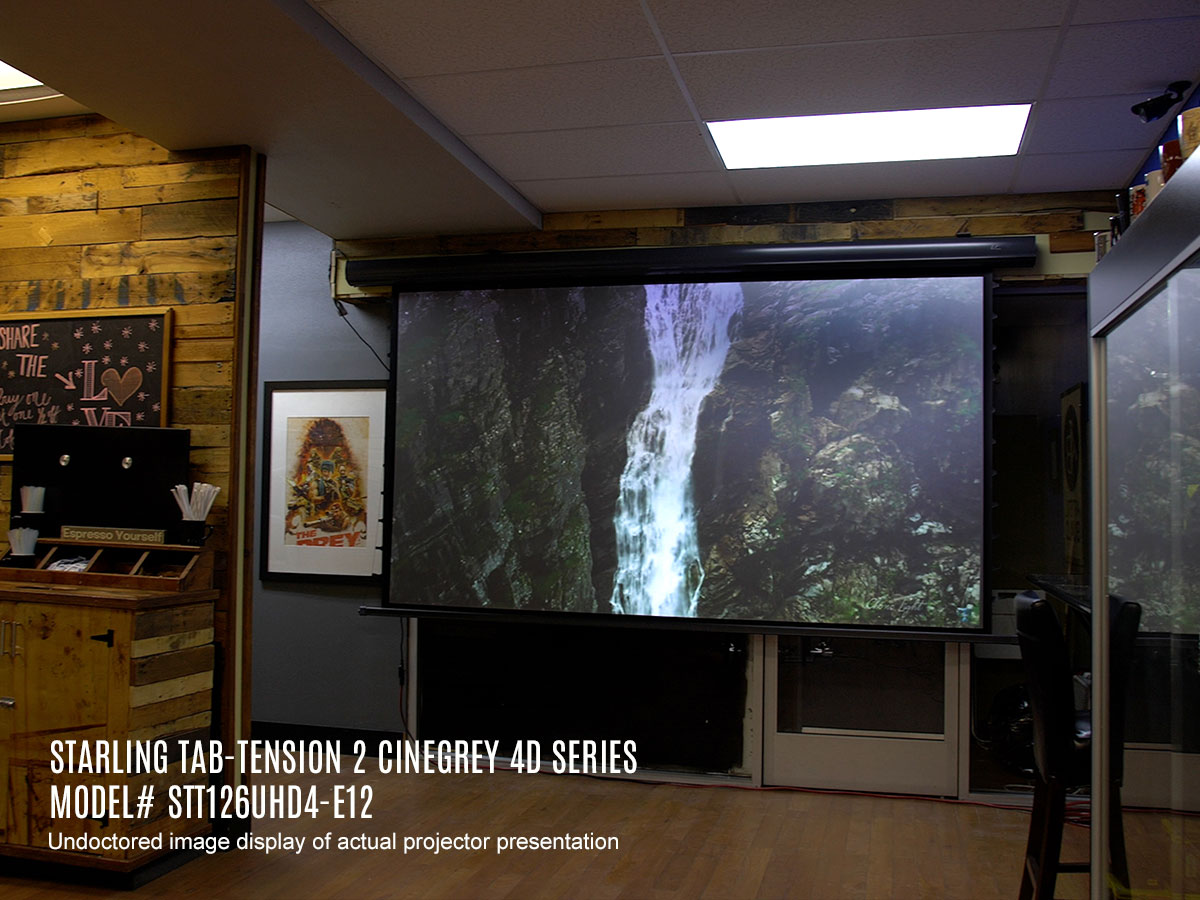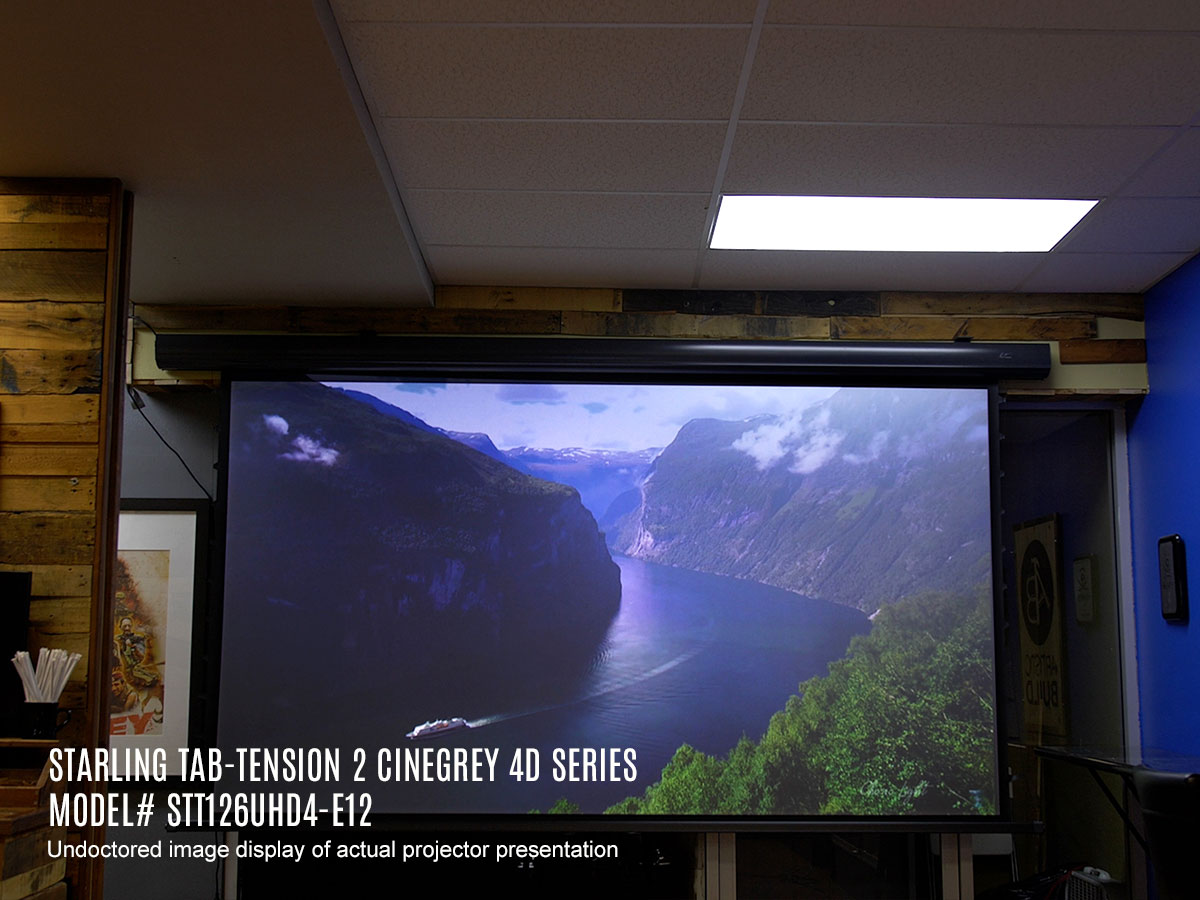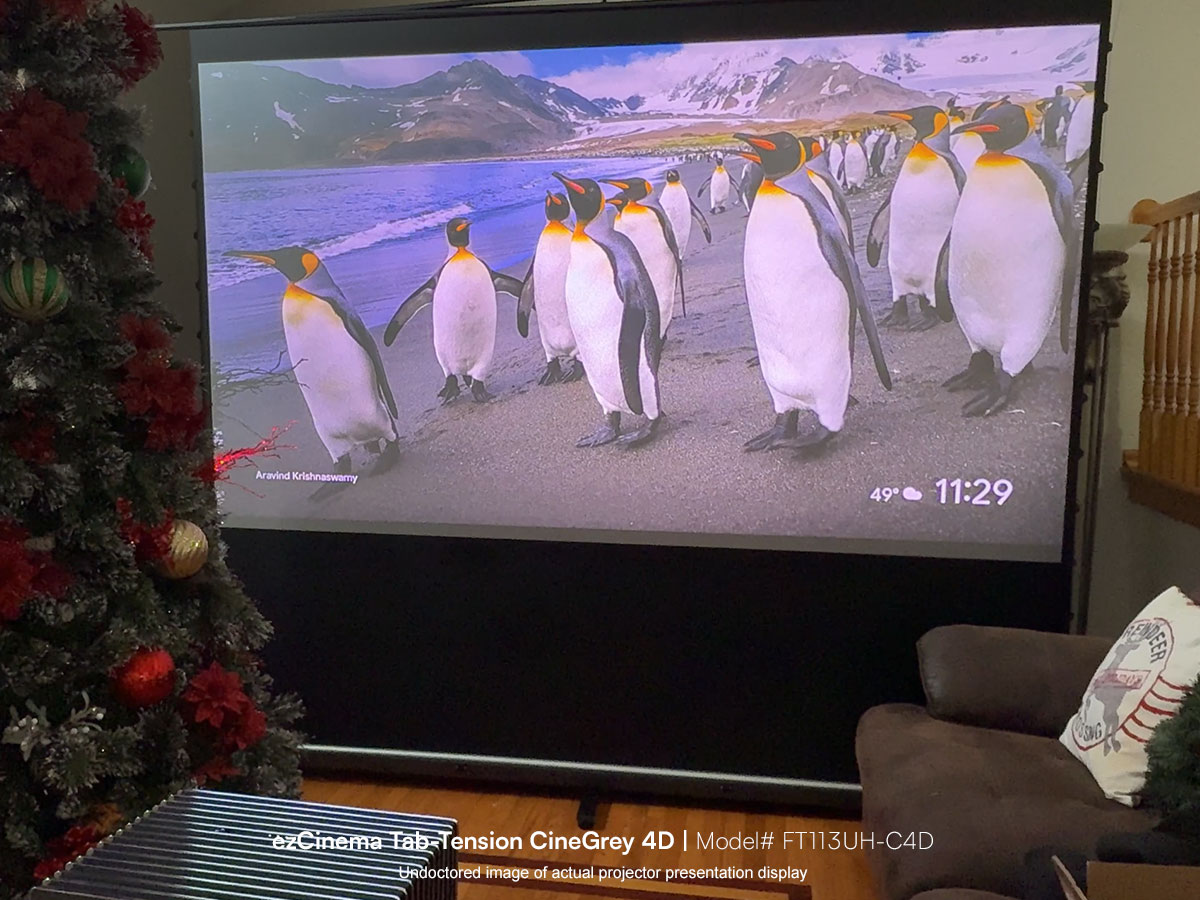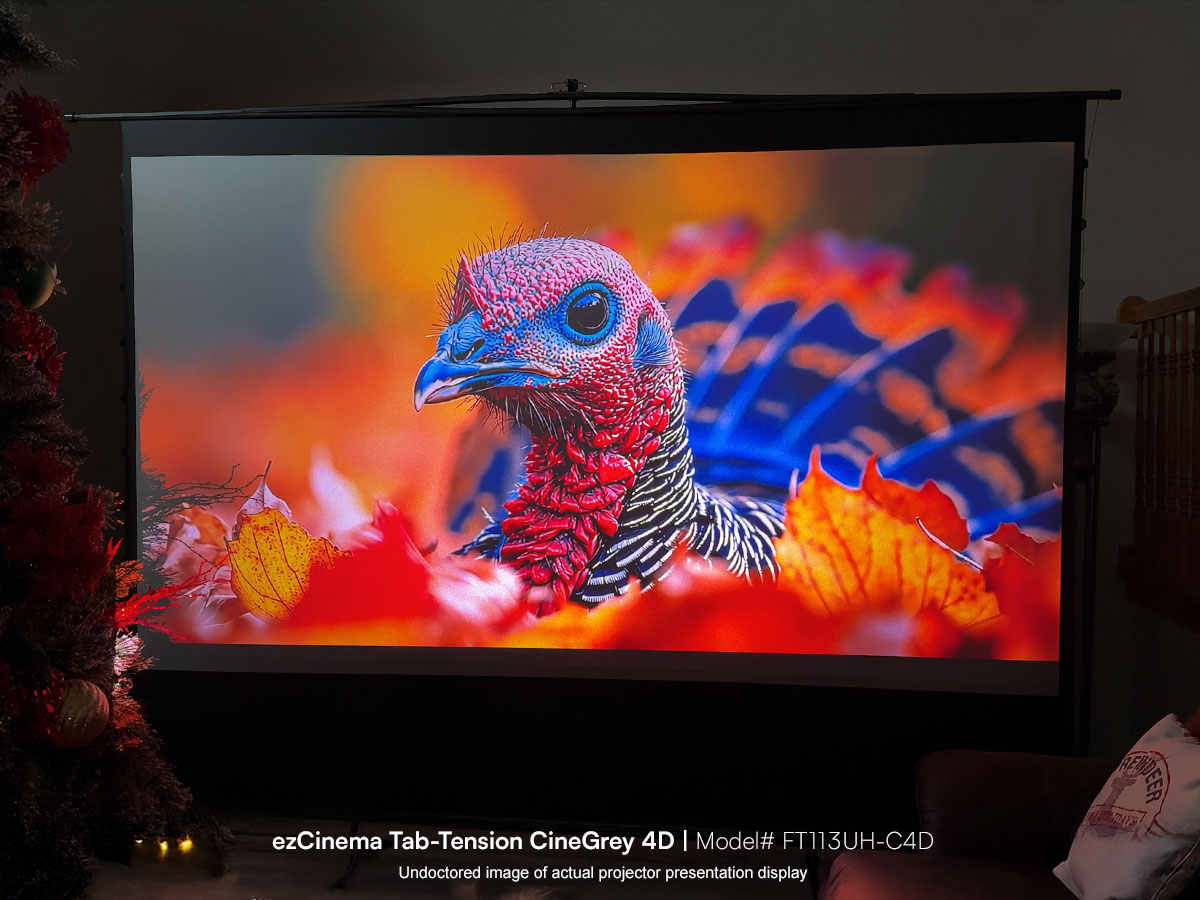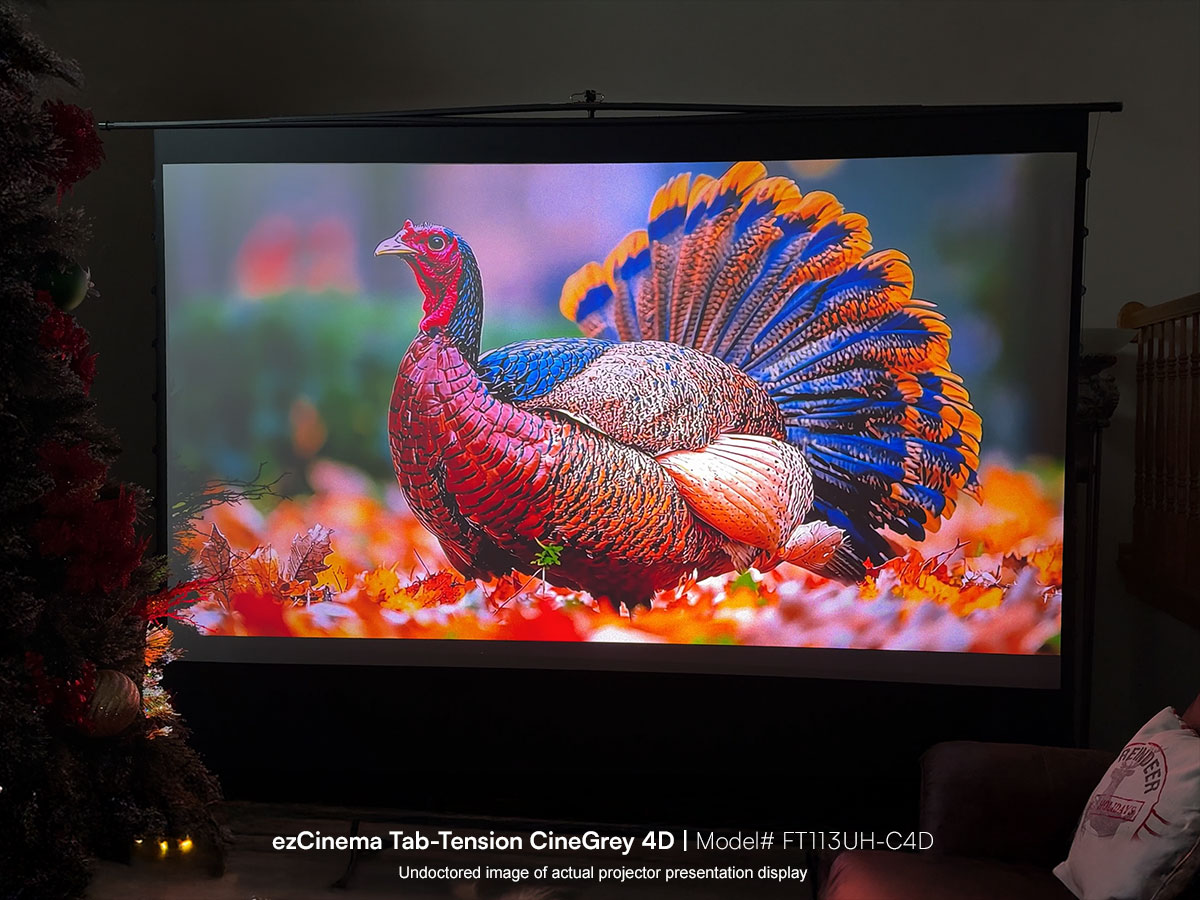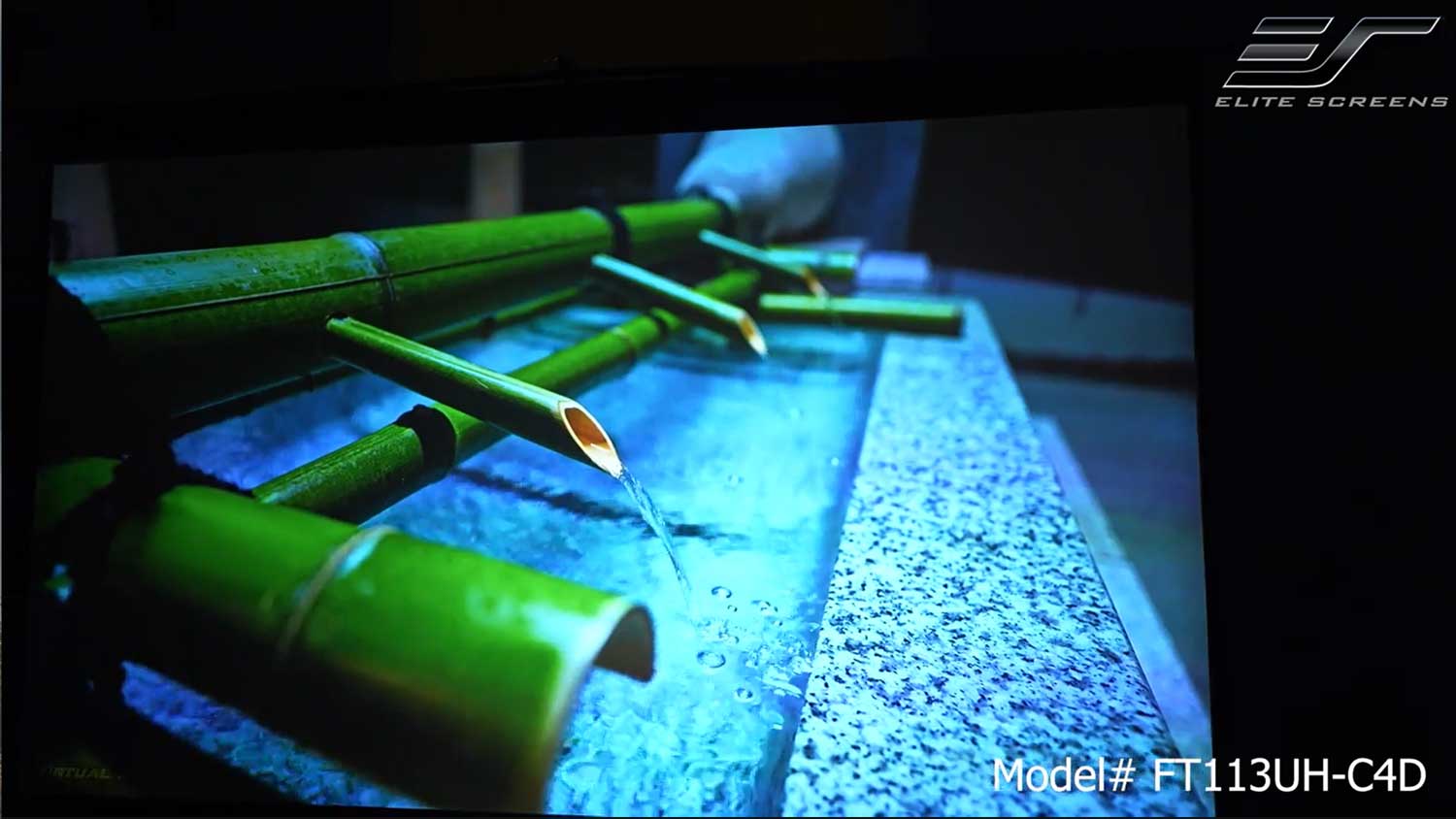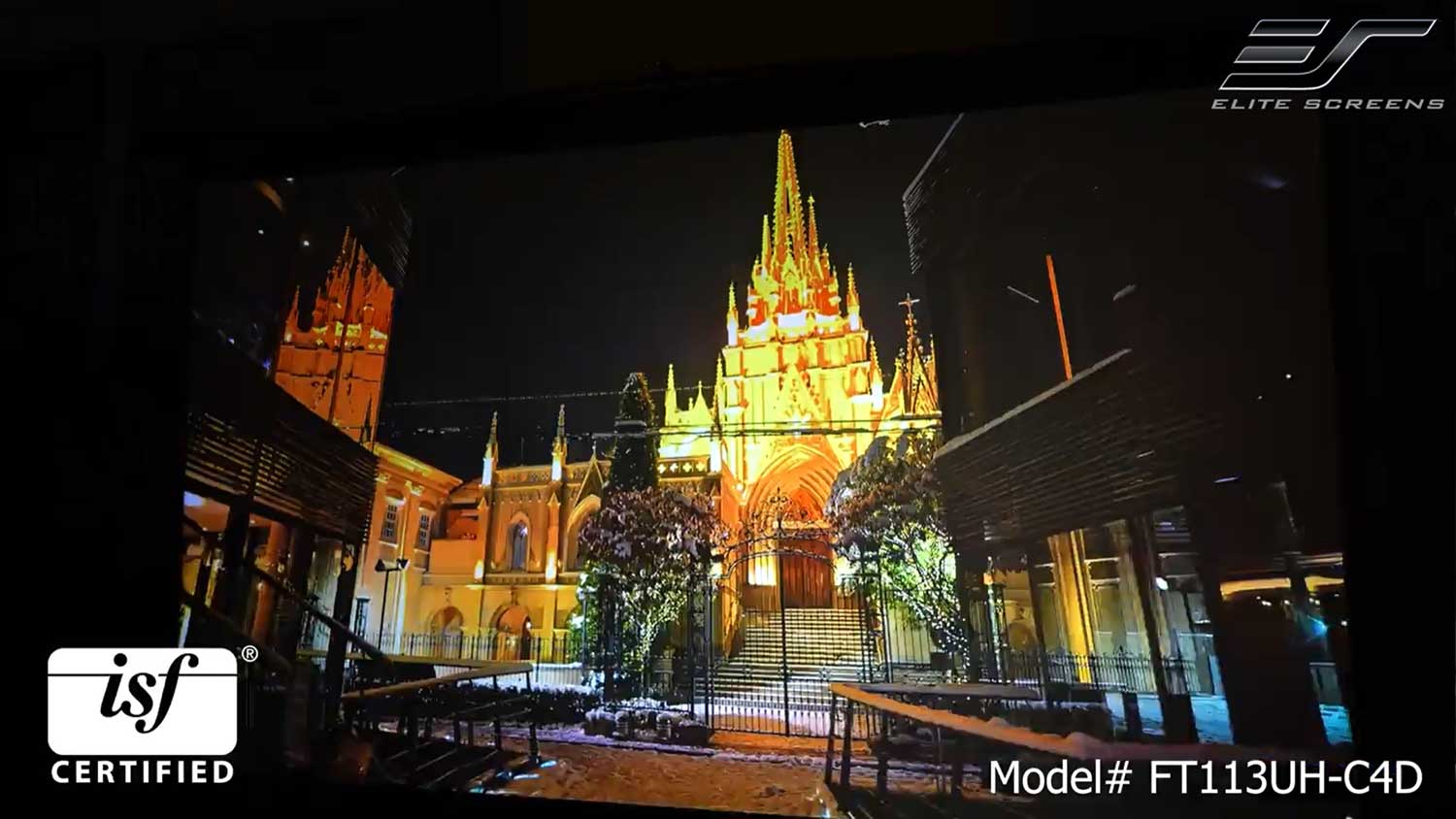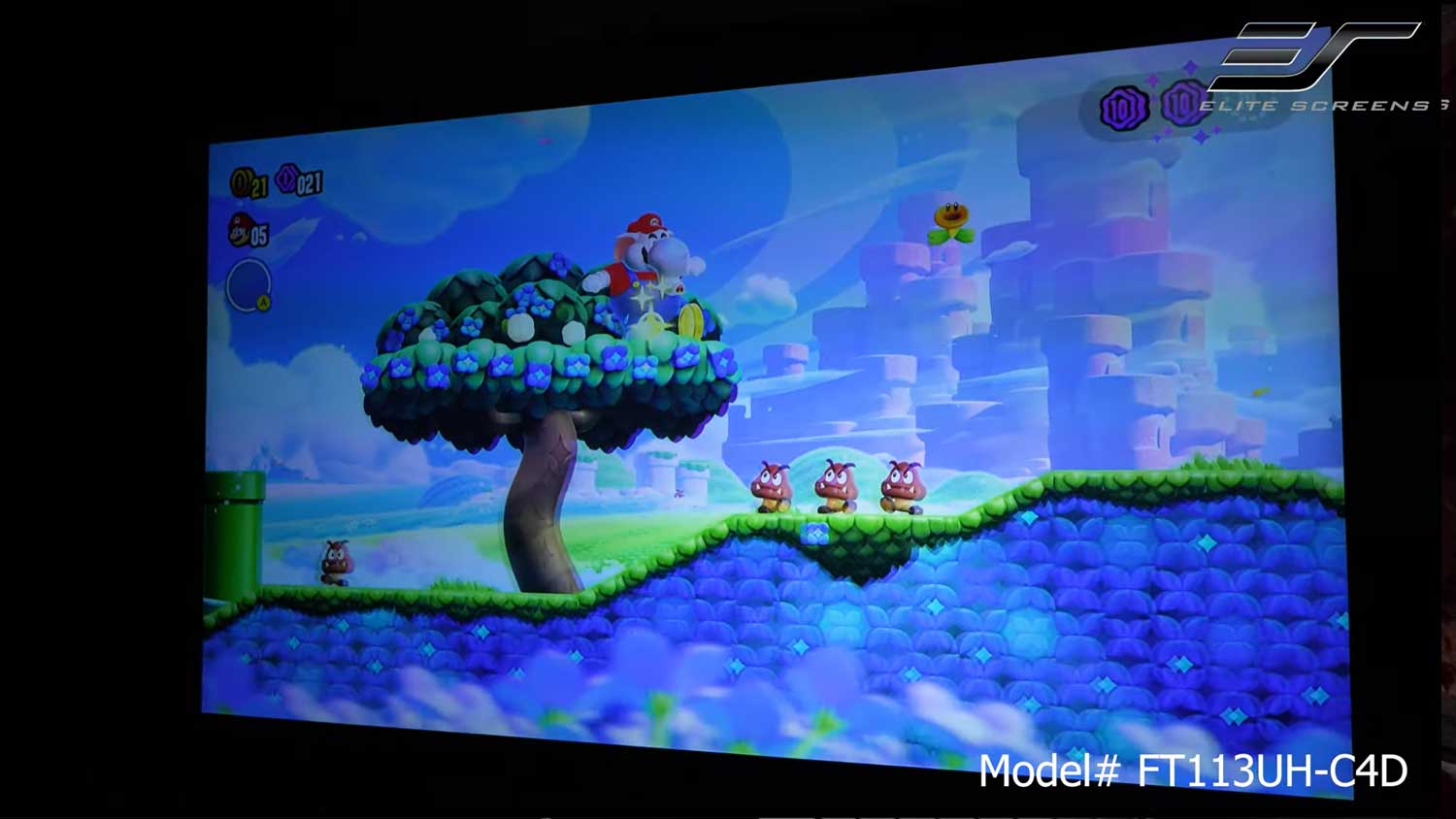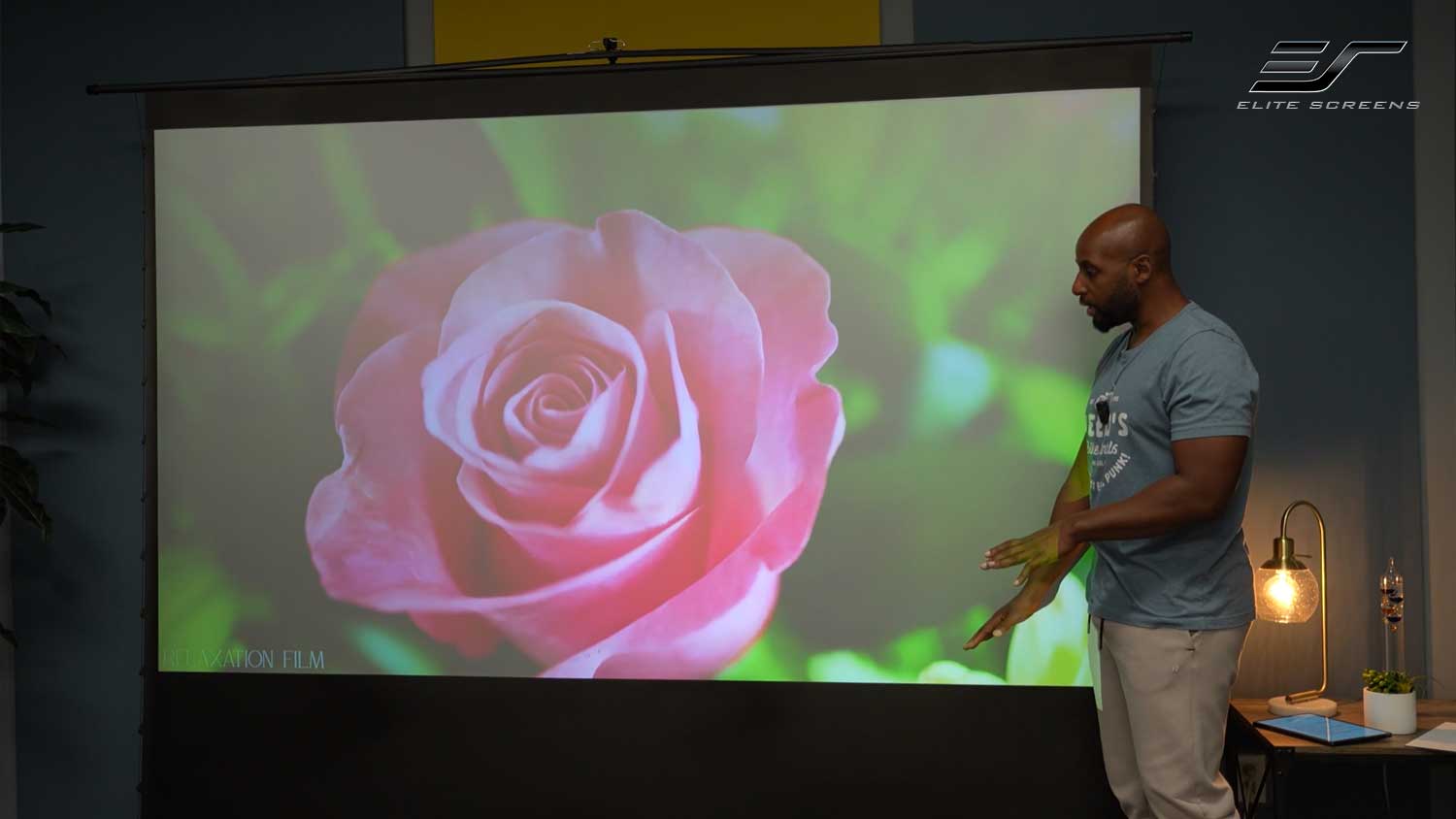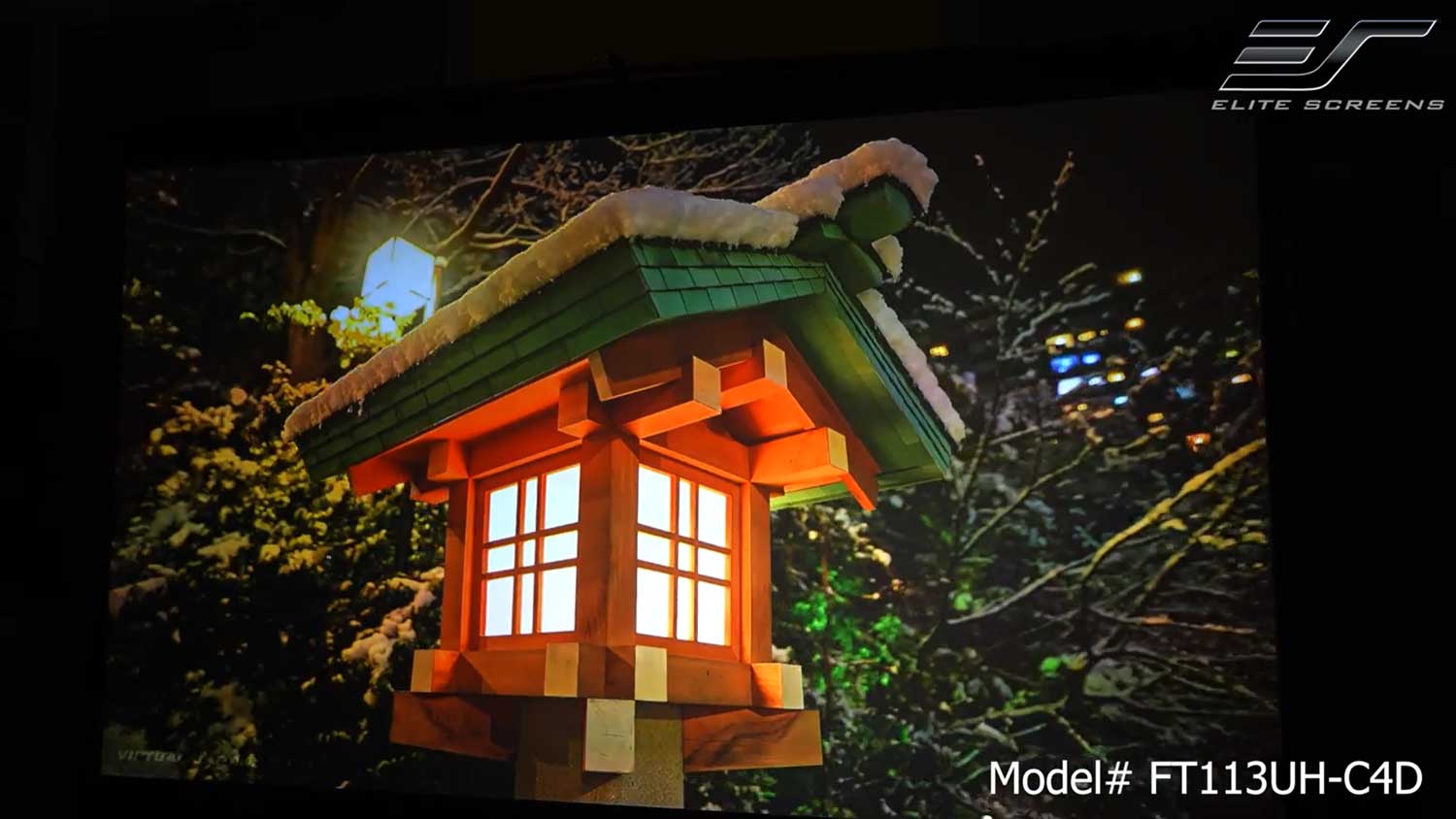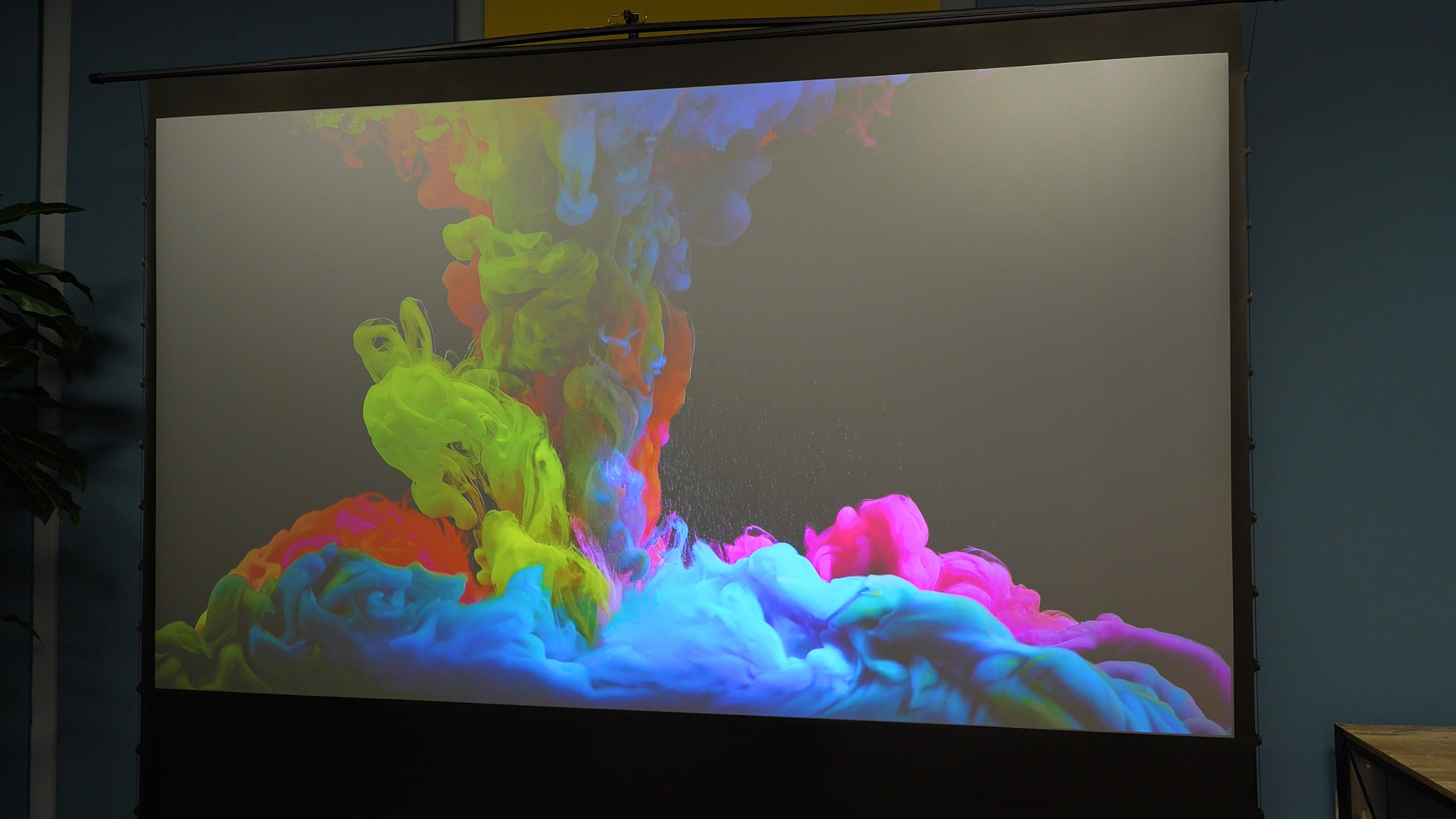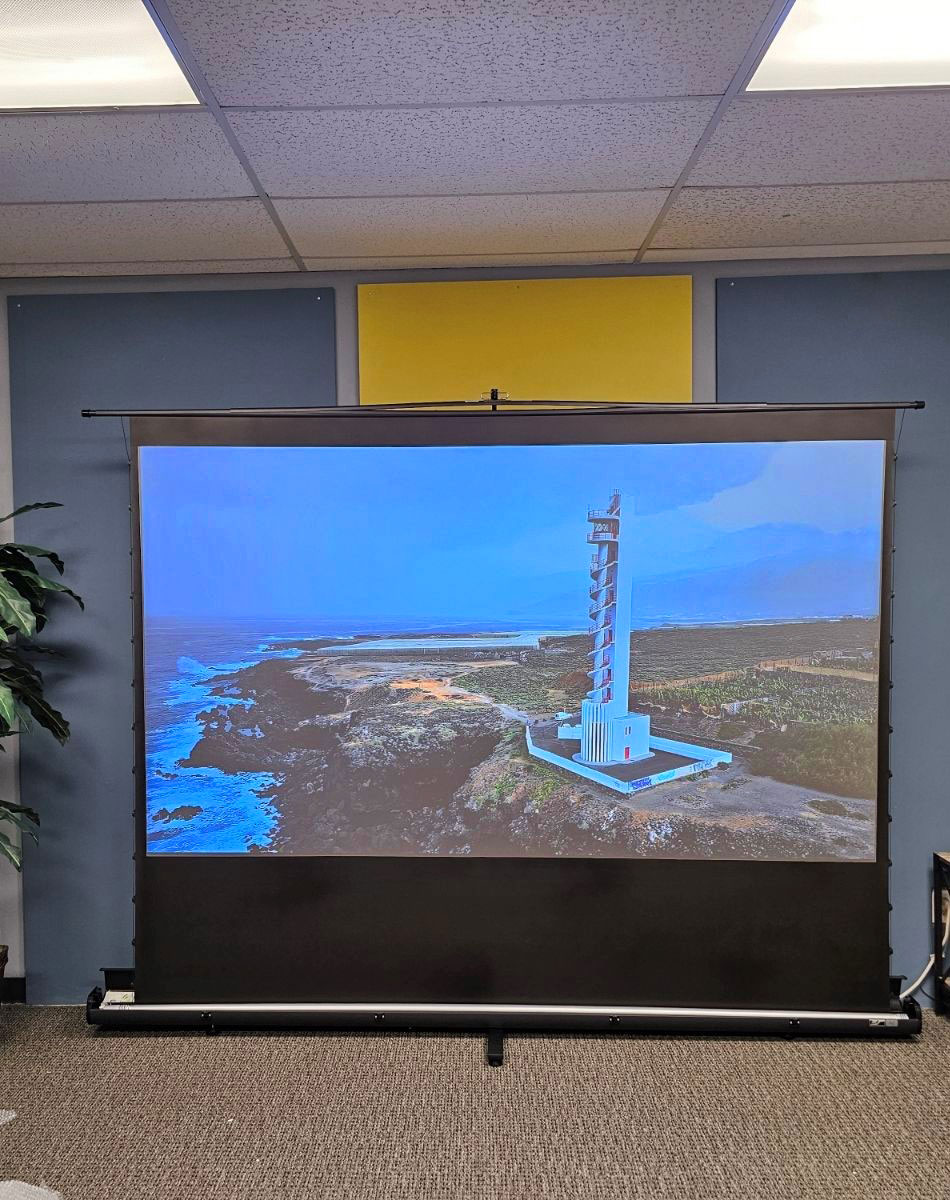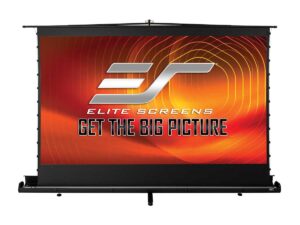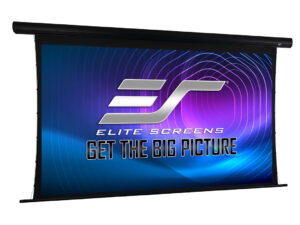front projection ceiling ambient light rejecting material for standard throw projectors
CineGrey 4D
The CineGrey 4D is a 1.1 gain flexible front projection ceiling ambient light rejecting material for standard throw projectors. It can reject up to 63% of off-axis lighting while providing a bright, contrast rich image in moderate light room environments. The CineGrey 4D produces outstanding images with a balanced color temperature for residential and commercial applications. The ambient light rejecting properties assist in maintaining picture clarity that does not wash out the image like typical matte white surfaces do under ambient light conditions. The surface is precisely formulated to ensure optical image characteristics for high resolution projectors.
| Gain | 1.1 |
|---|---|
| Viewing Angle | 70° |
| Compatible Projection | Standard "Long" Throw |
| Material Type | Ambient Light Rejecting (ALR/CLR®), Silver & Grey |
| Reflective Technology Type | Angular-Reflective |
| Certifications | GREENGUARD Certified, GREENGUARD Gold Certified, ISF Certified |
- 1.1 Gain Ceiling Ambient Light Rejecting Material for moderate light room environments
- Multi-layer matrix uses reflective and absorbent micro-particles to eliminate 63% of ambient light
- Angular Reflective CLR°/ALR Front Projection Surface for Standard “long” Throw Projectors
- 63% ambient light rejection
- Enhances color contrast with excellent fidelity and uniformity
- ISF Certified for Accurate Color Reproduction – An Industry Standard for High Fidelity Video Display Systems
- GREENGUARD® / GREENGUARD® Gold Certified UL 2818 for Safety Indoor Emissions free
- Can be cleaned with mild soap and water and is mildew resistant
- 4K Ultra HD, HDR and Active 3D compatible
- Not compatible with Ultra-short and Short-throw Projectors
Comparison Tables
- CLR®/ALR Materials Comparison
- All Screen Material Comparison (PDF)
- CineGrey 3D® / 4D / 5D® Comparison Table
Others
- On-axis Gain: 1.1
- Half Gain Angle: 35°
- Projection Type: Front Only
- Composition: Flexible PVC
- Edge Blend: No
- Thickness: 0.31 mm +/- 0.02 mm
- Weight: 410 g /m2 +/- 10g
- Lens Throw Ratio: >1.4
- Operating Temperature: 20°-40°C (68°-104°F)
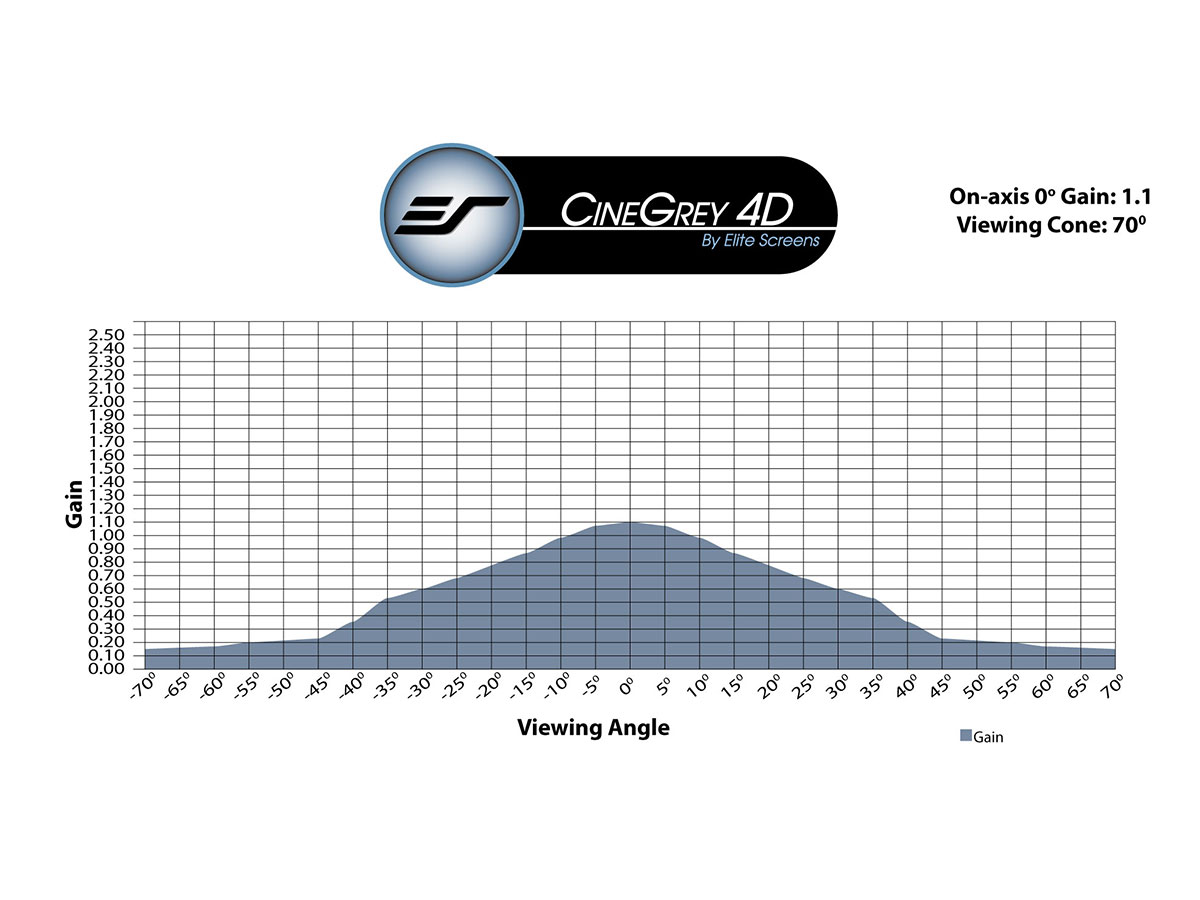
Lifestyle Gallery
Undoctored image of actual projector presentation
2-year limited warranty, and 3-year warranty for ENR-G – Education, Non-profit, Religious and Government/Military organizations
Lifetime Tech Support by Elite Screens Professional Service Team through Email, Phone or Online Form.

